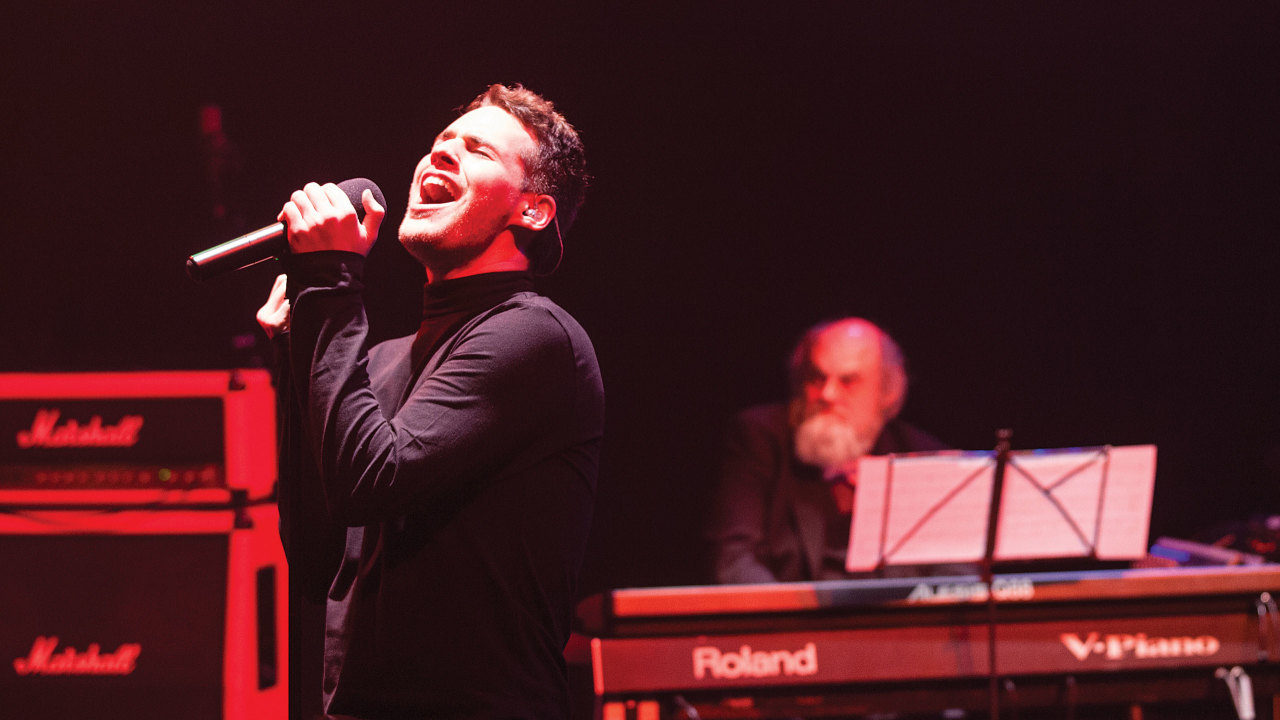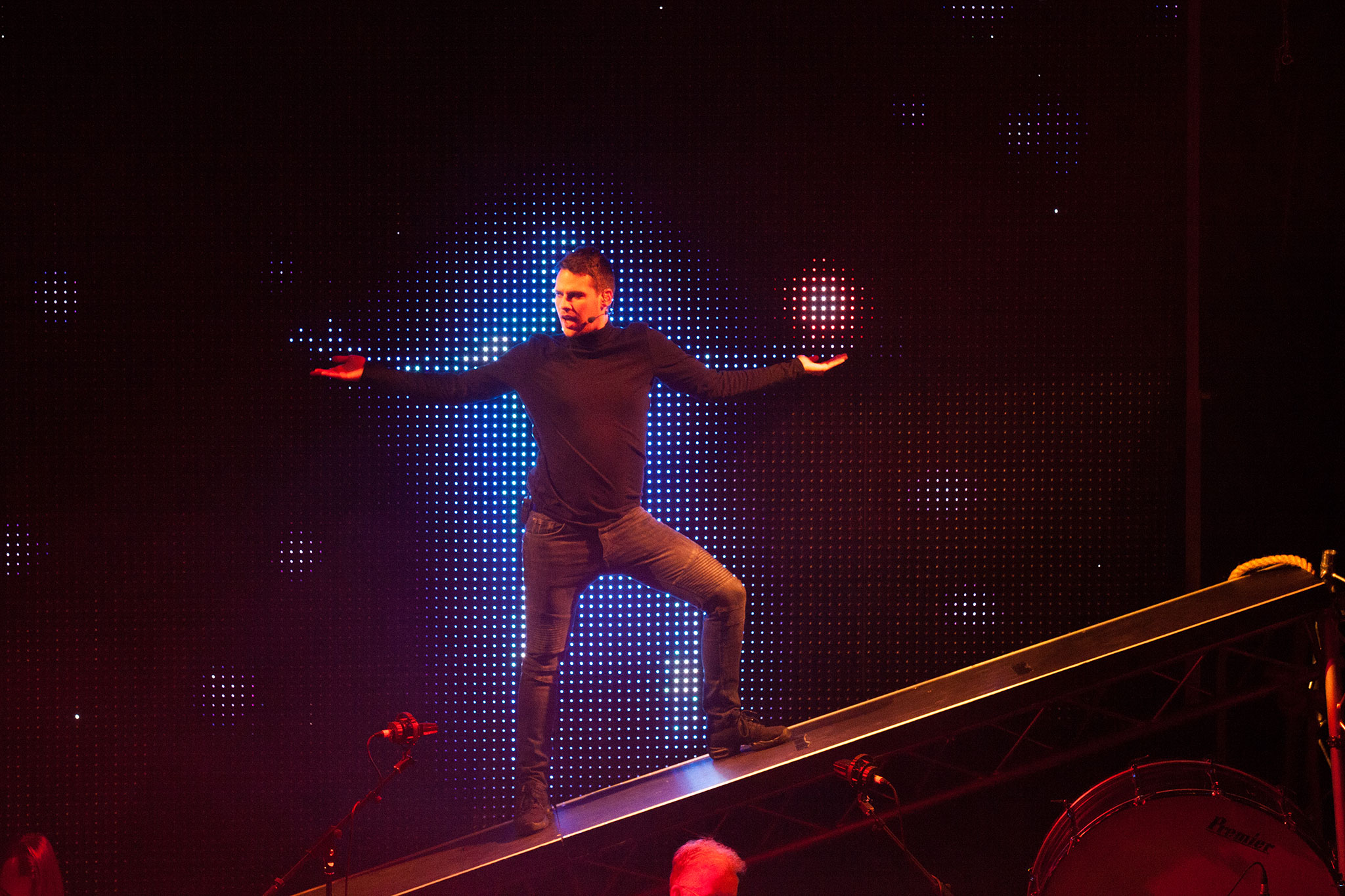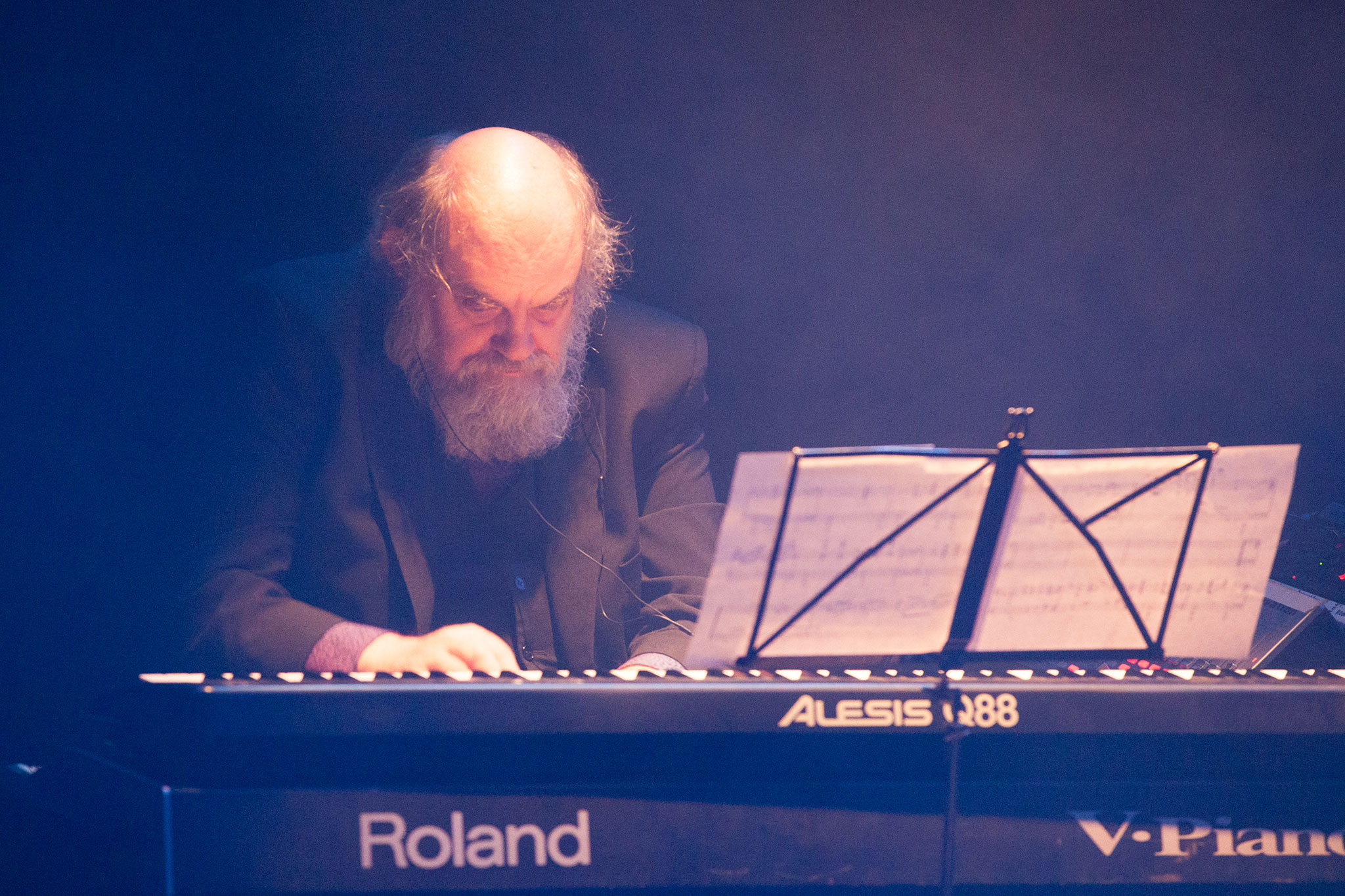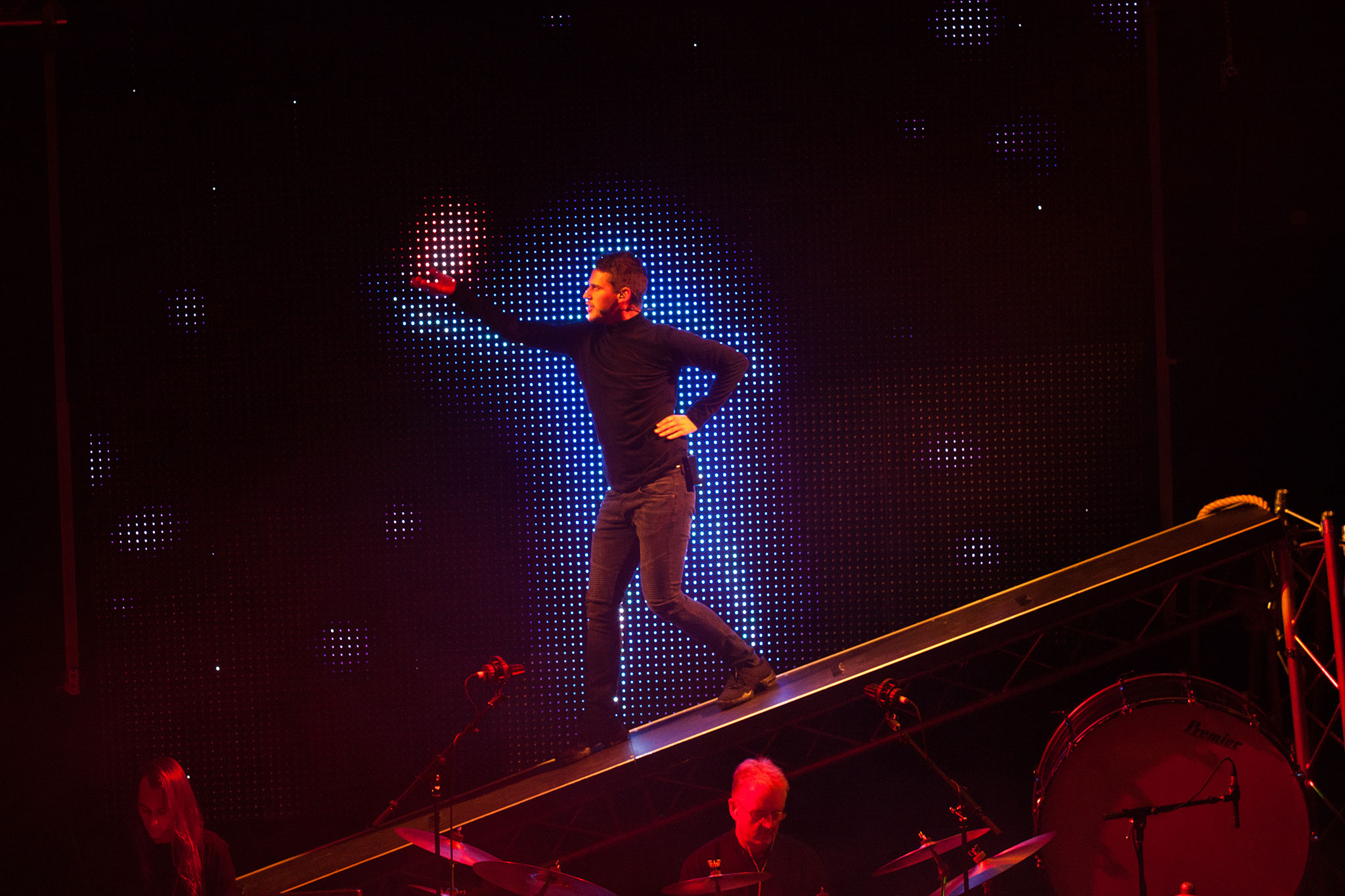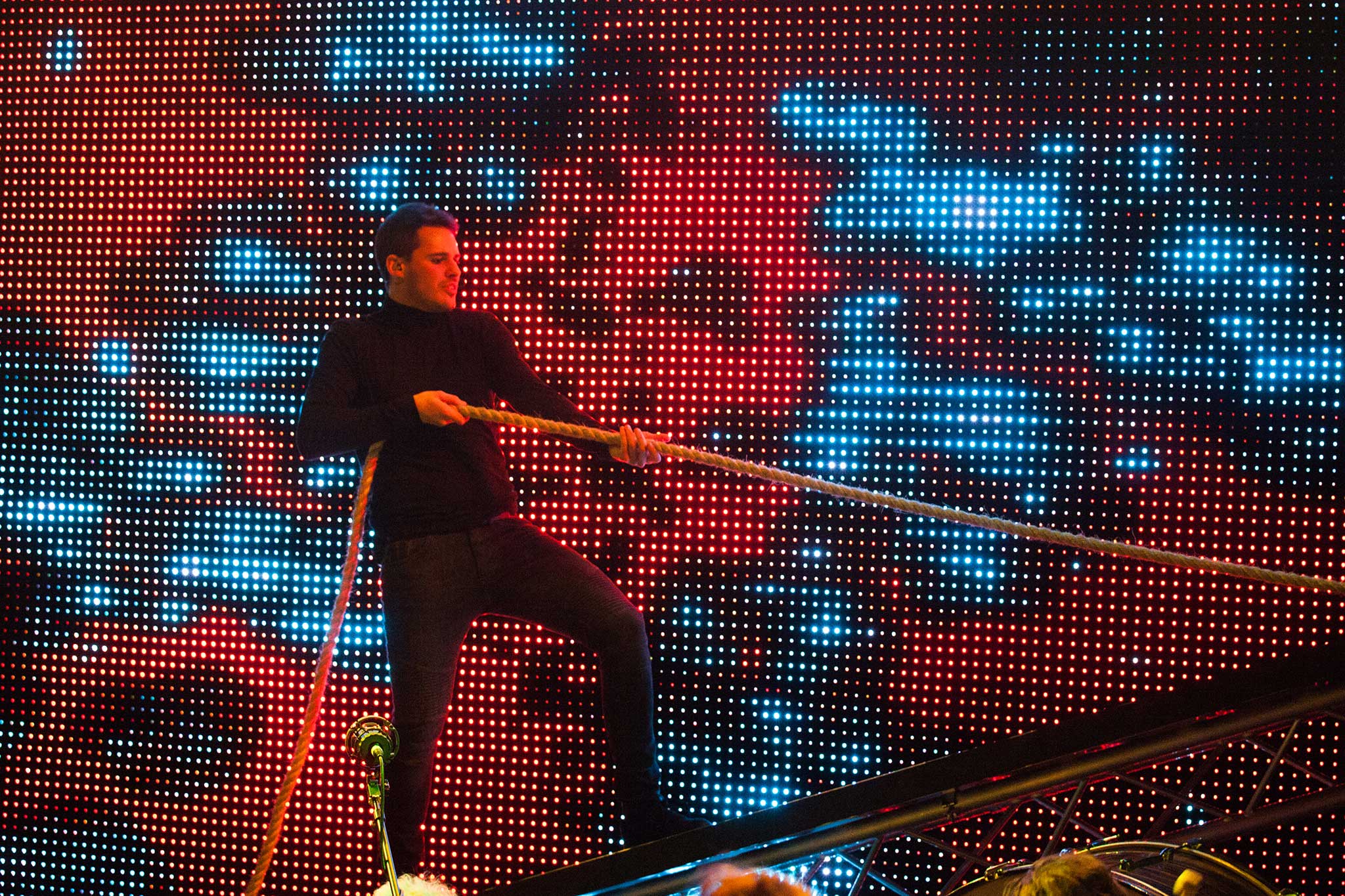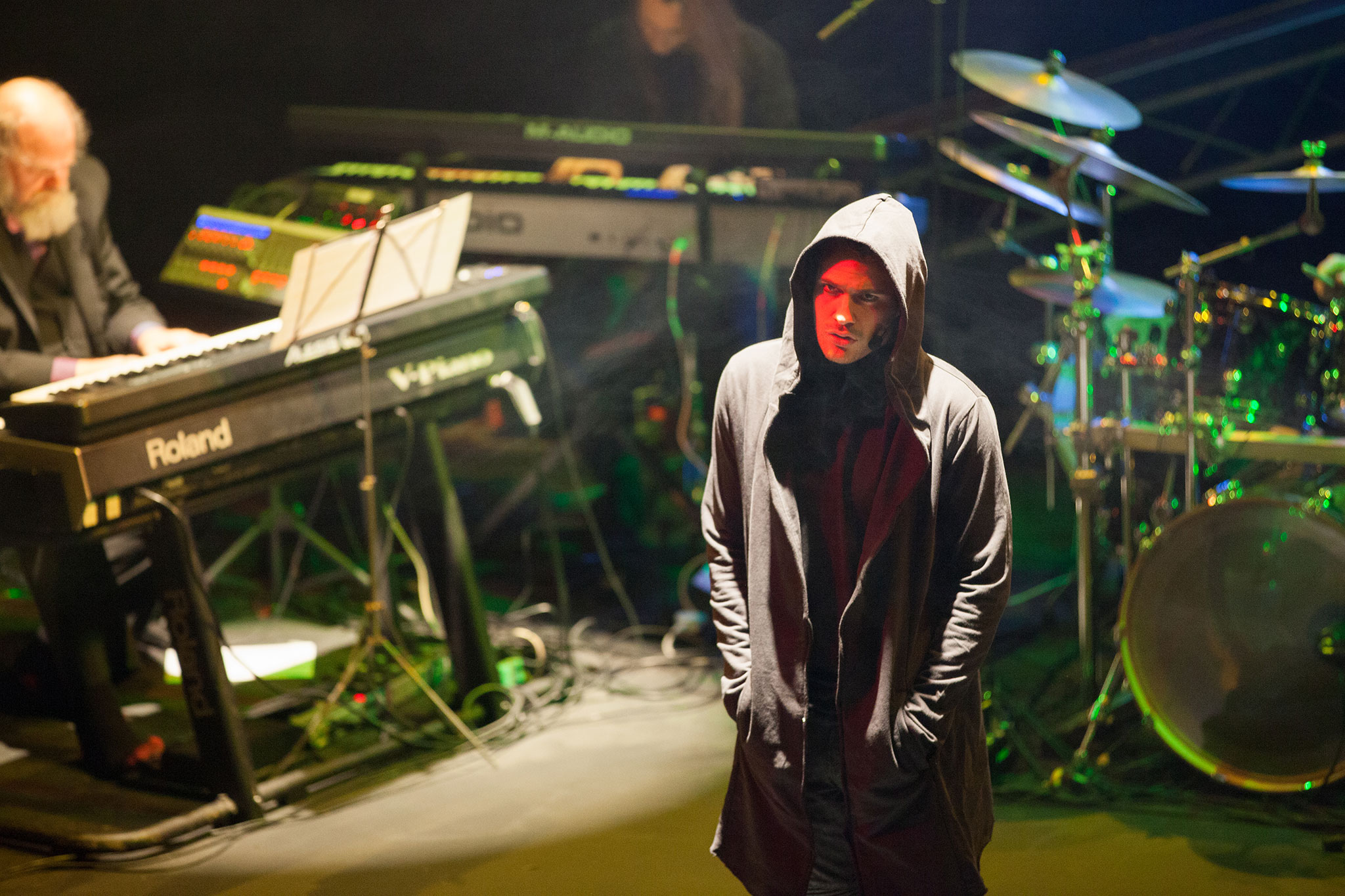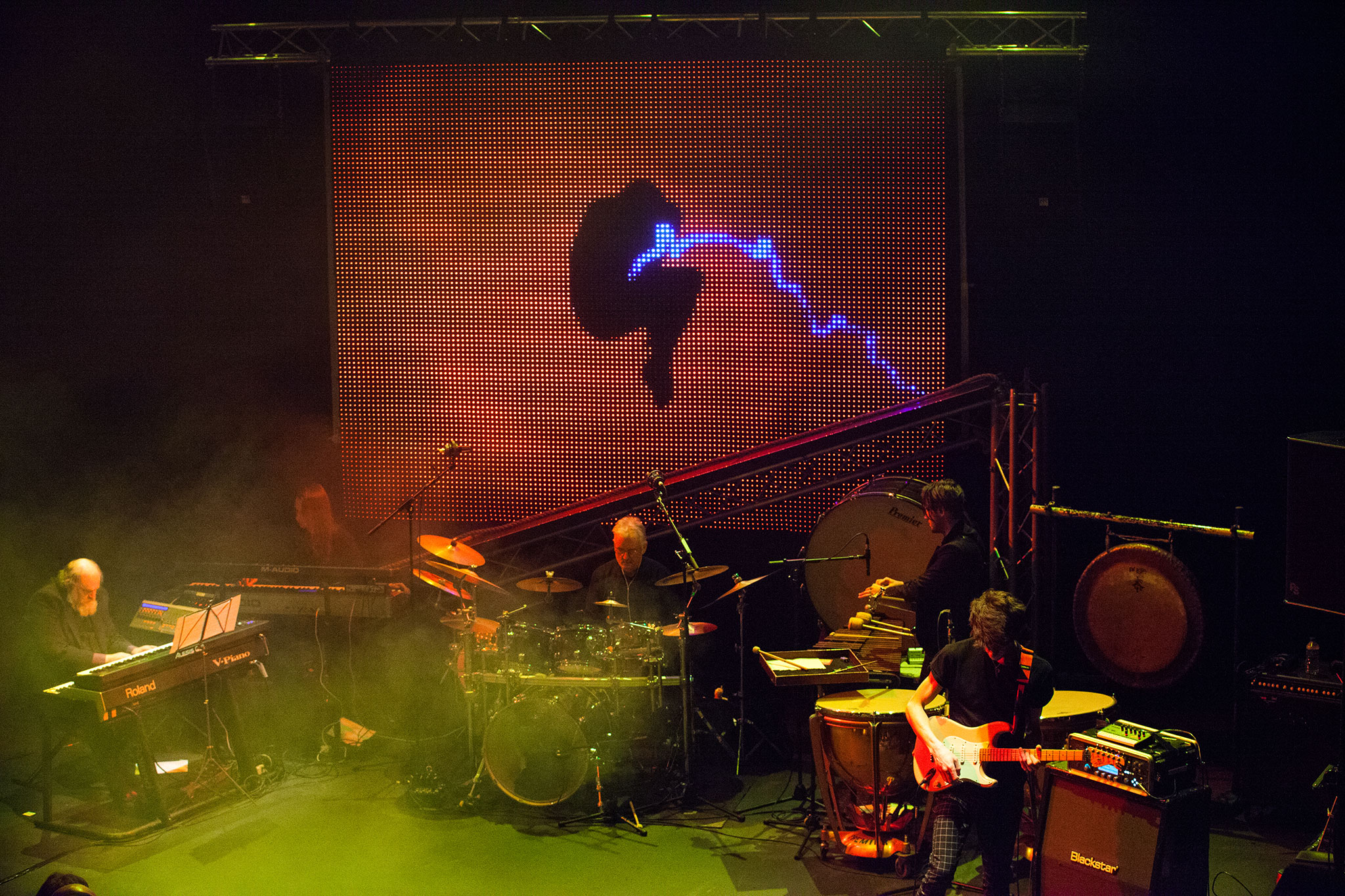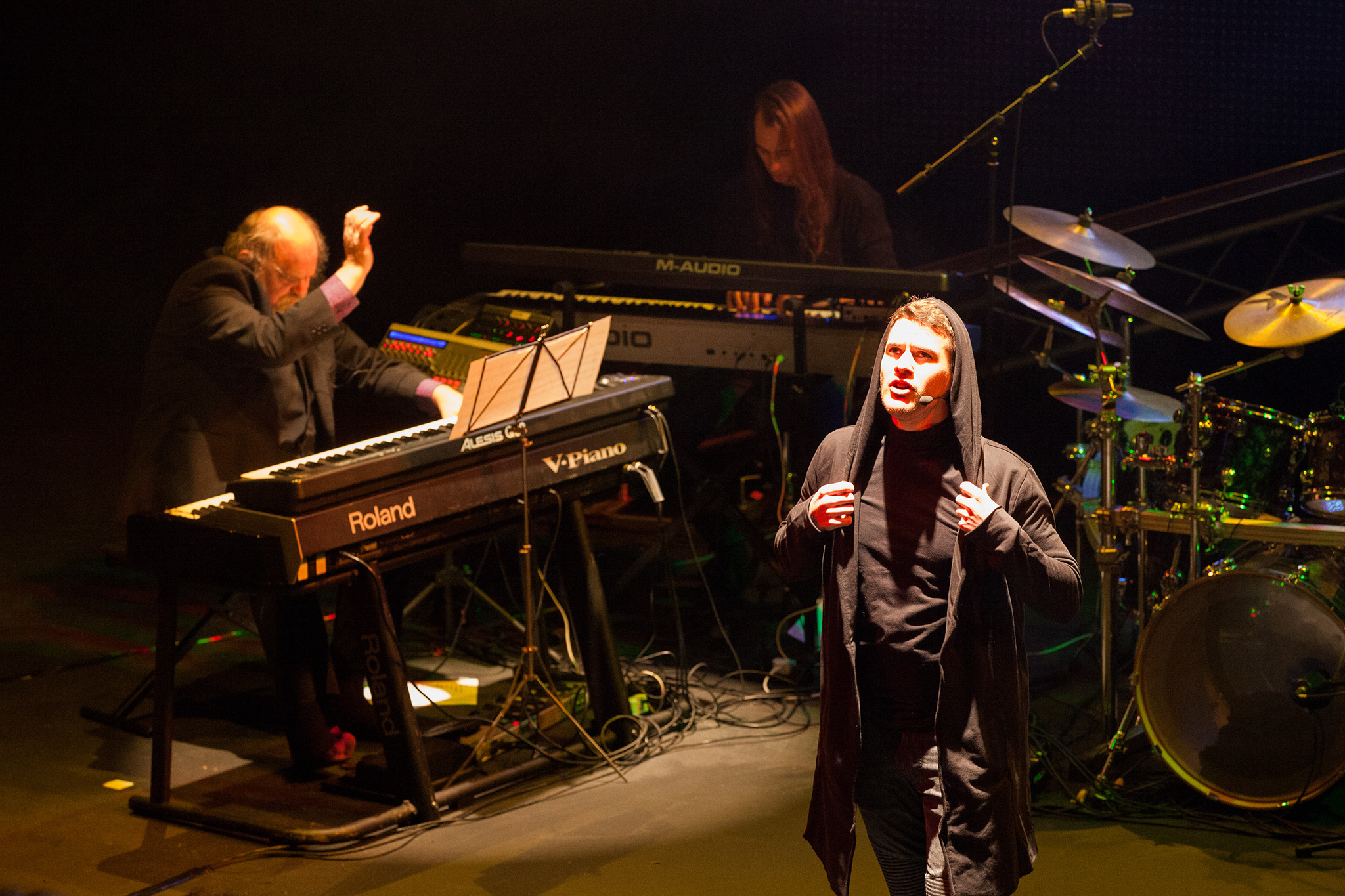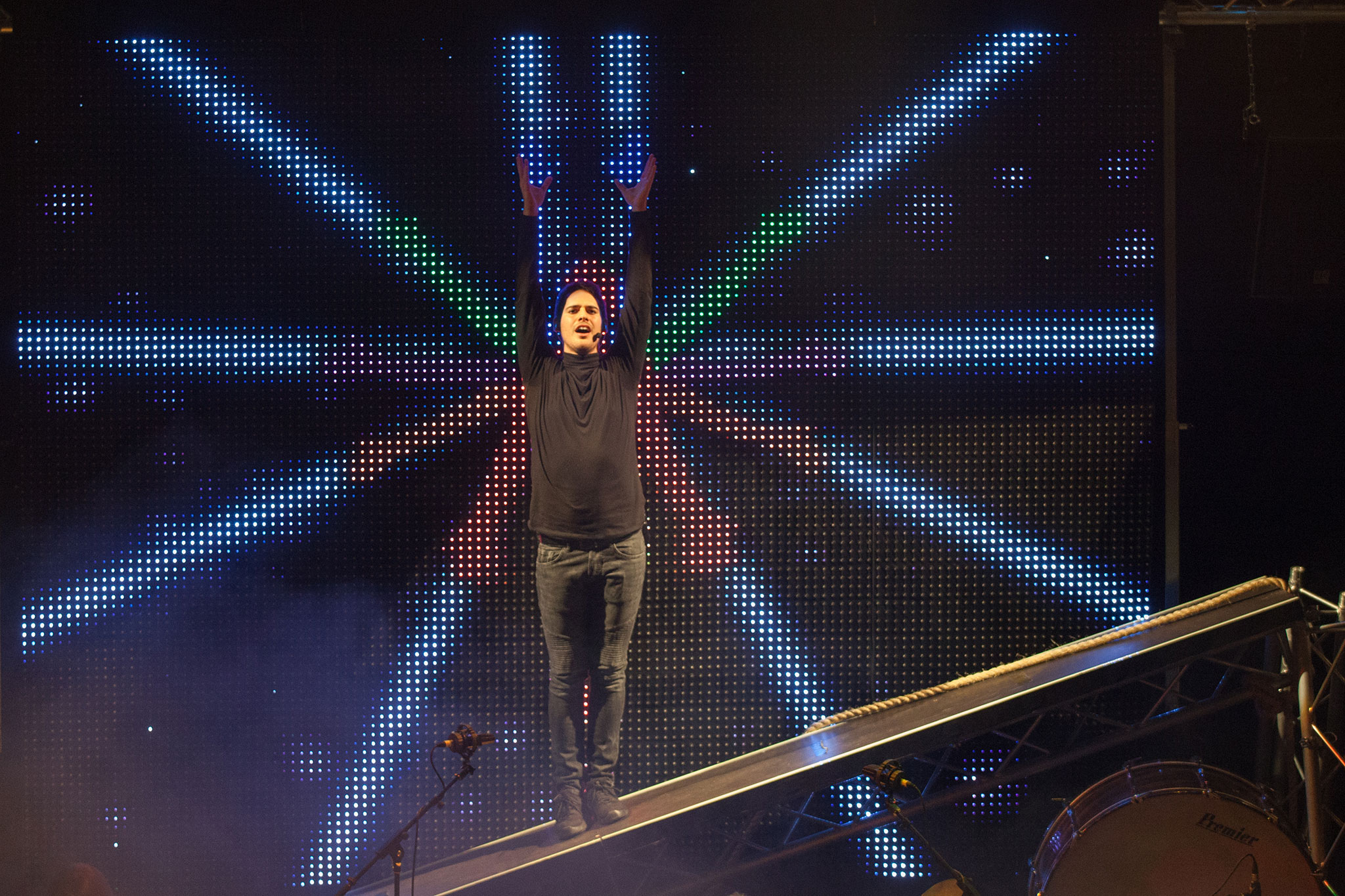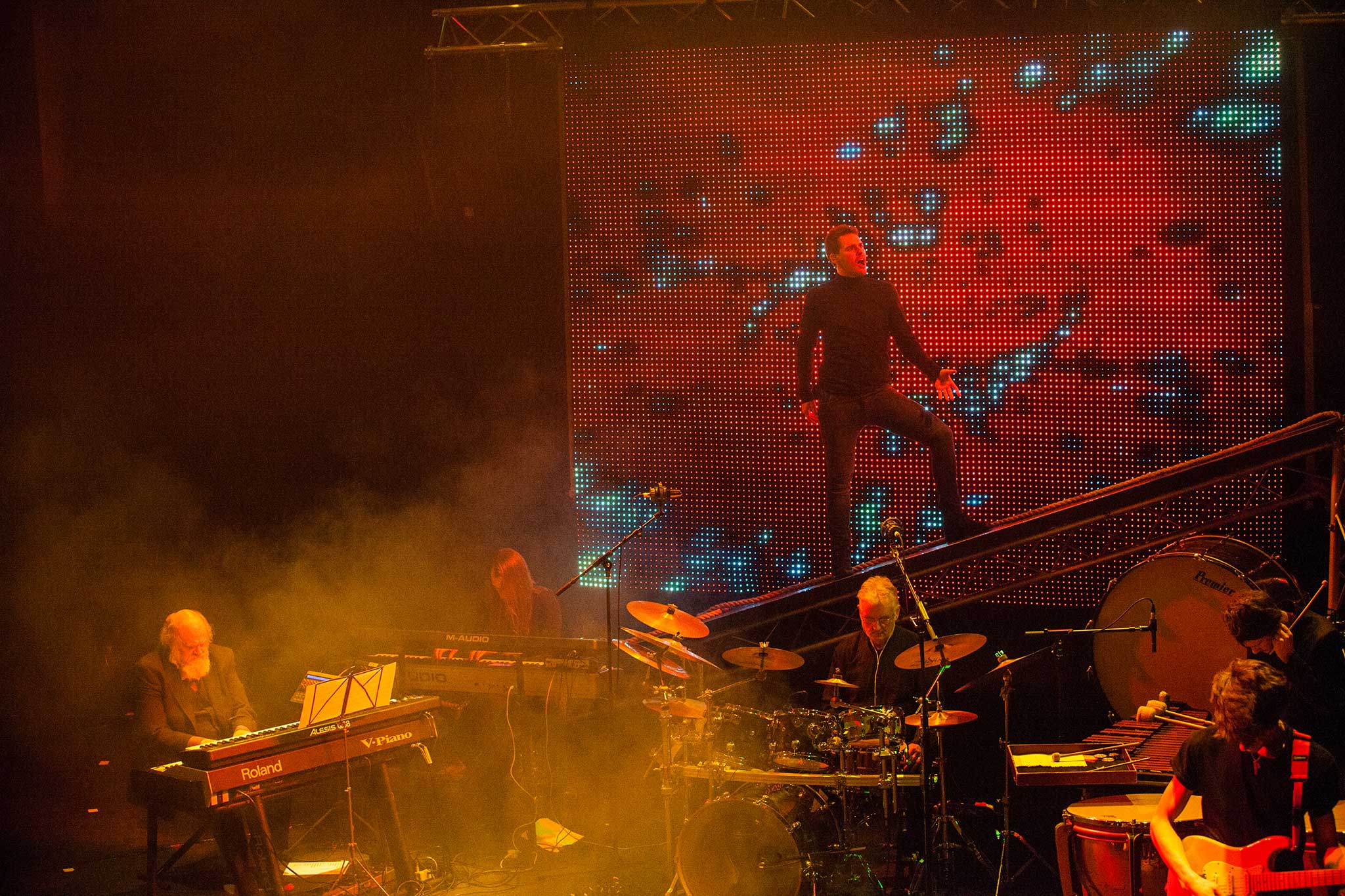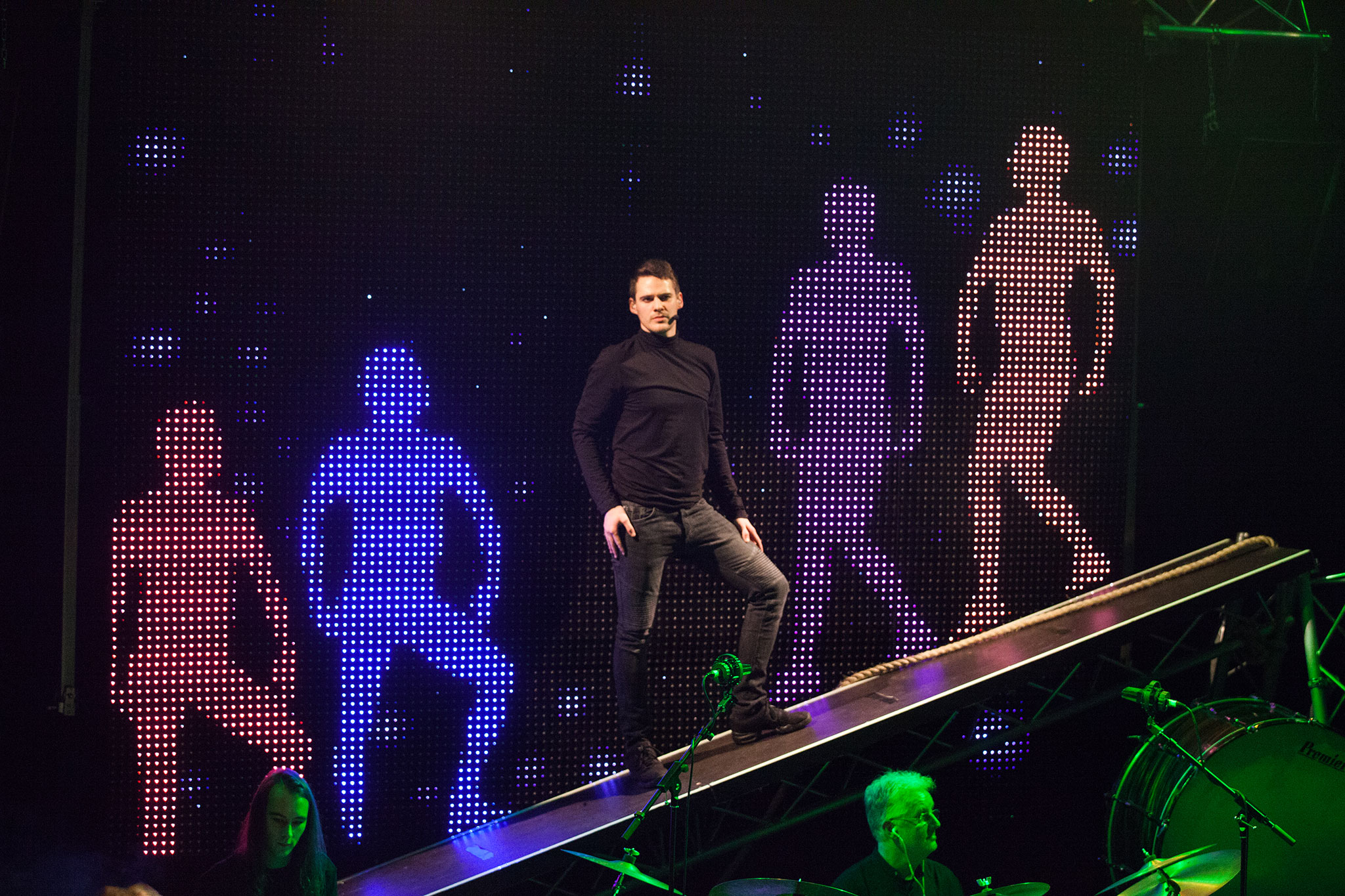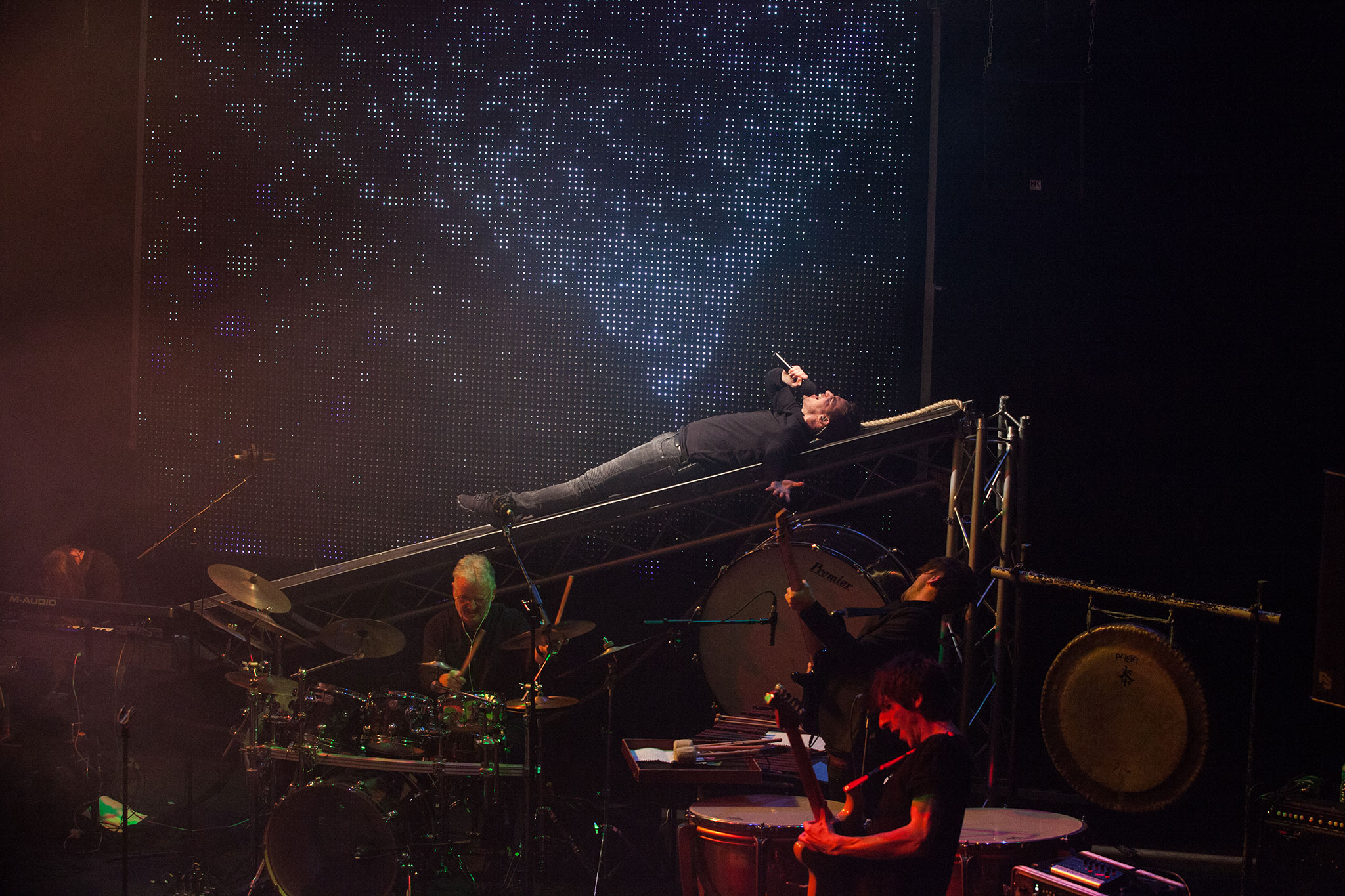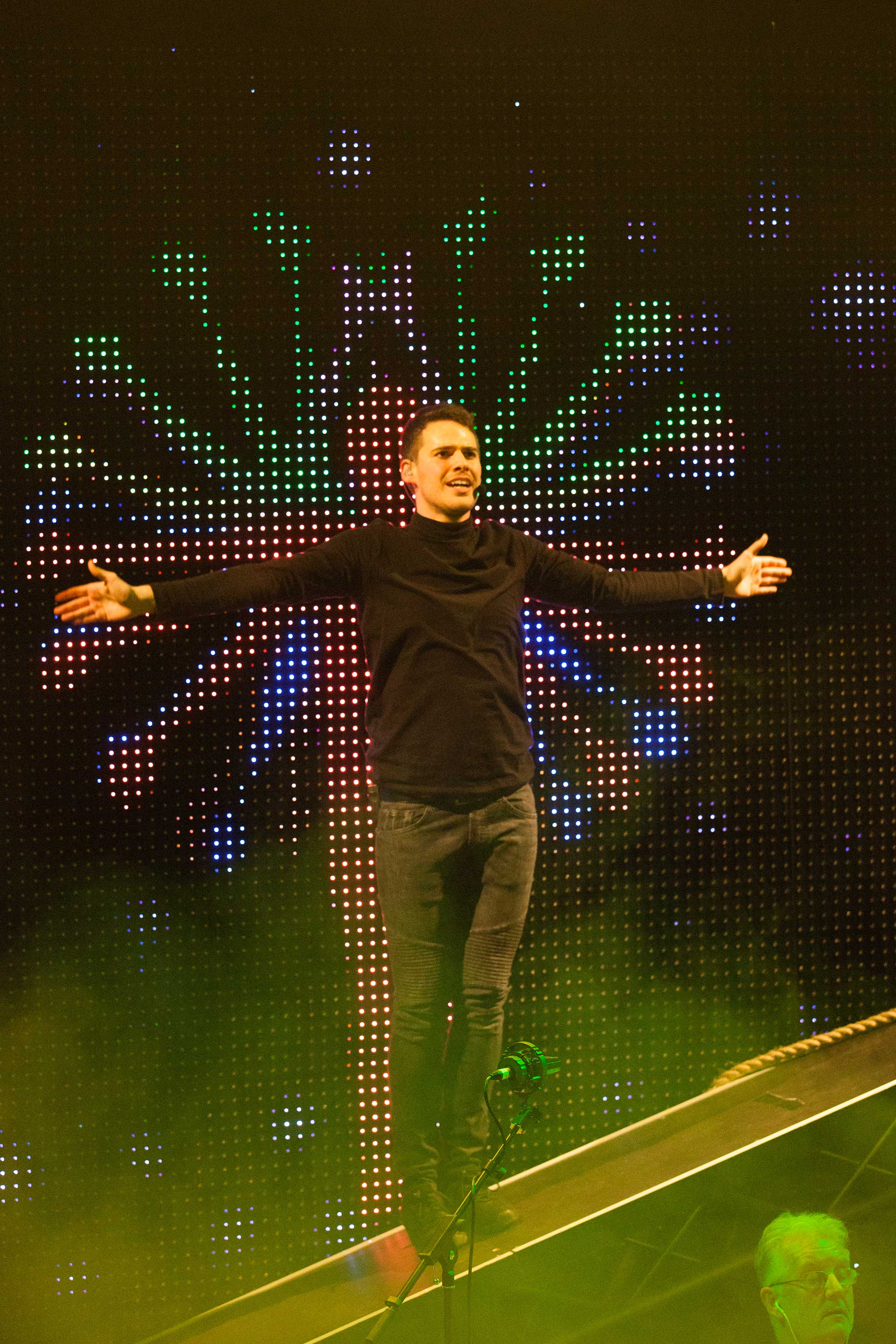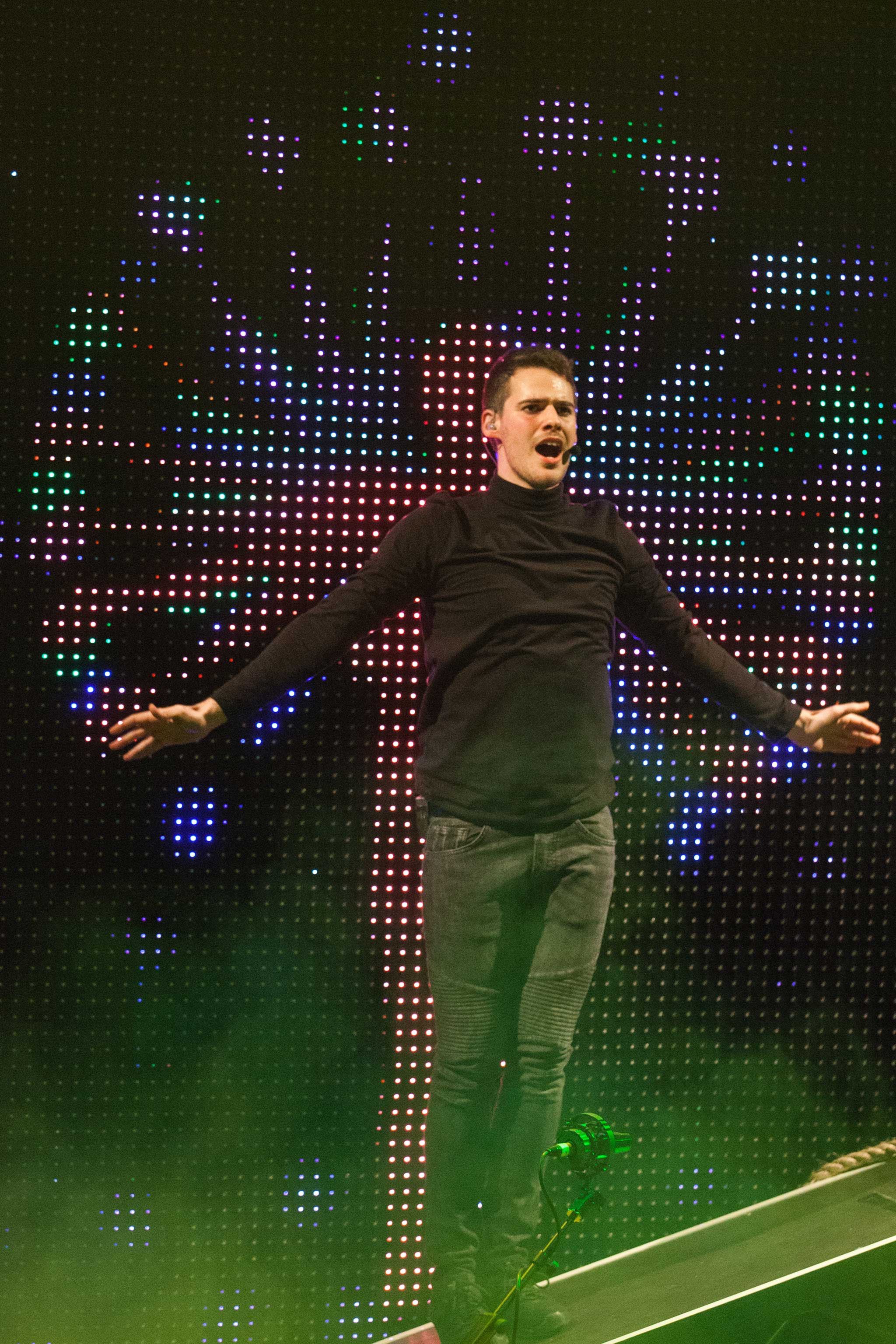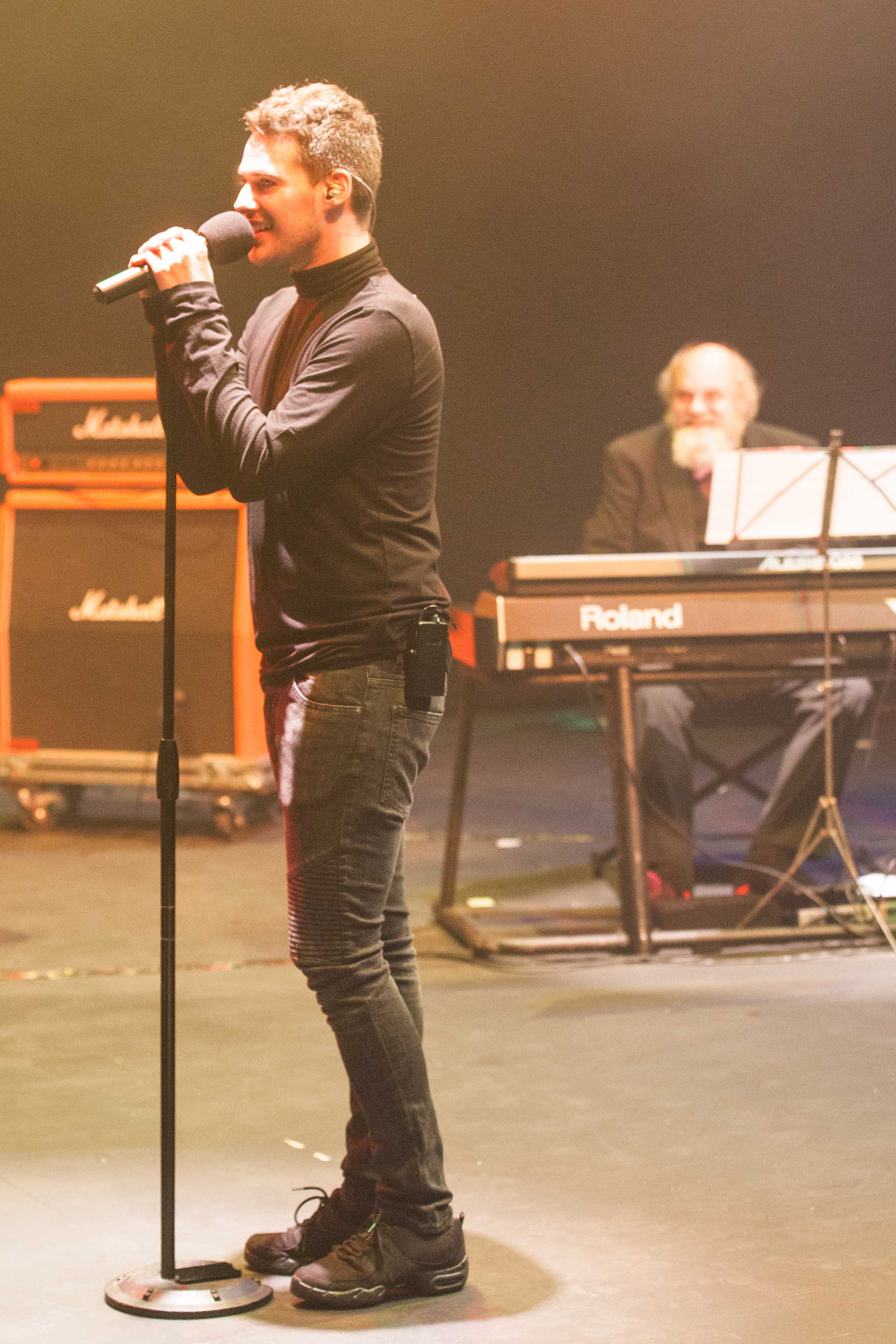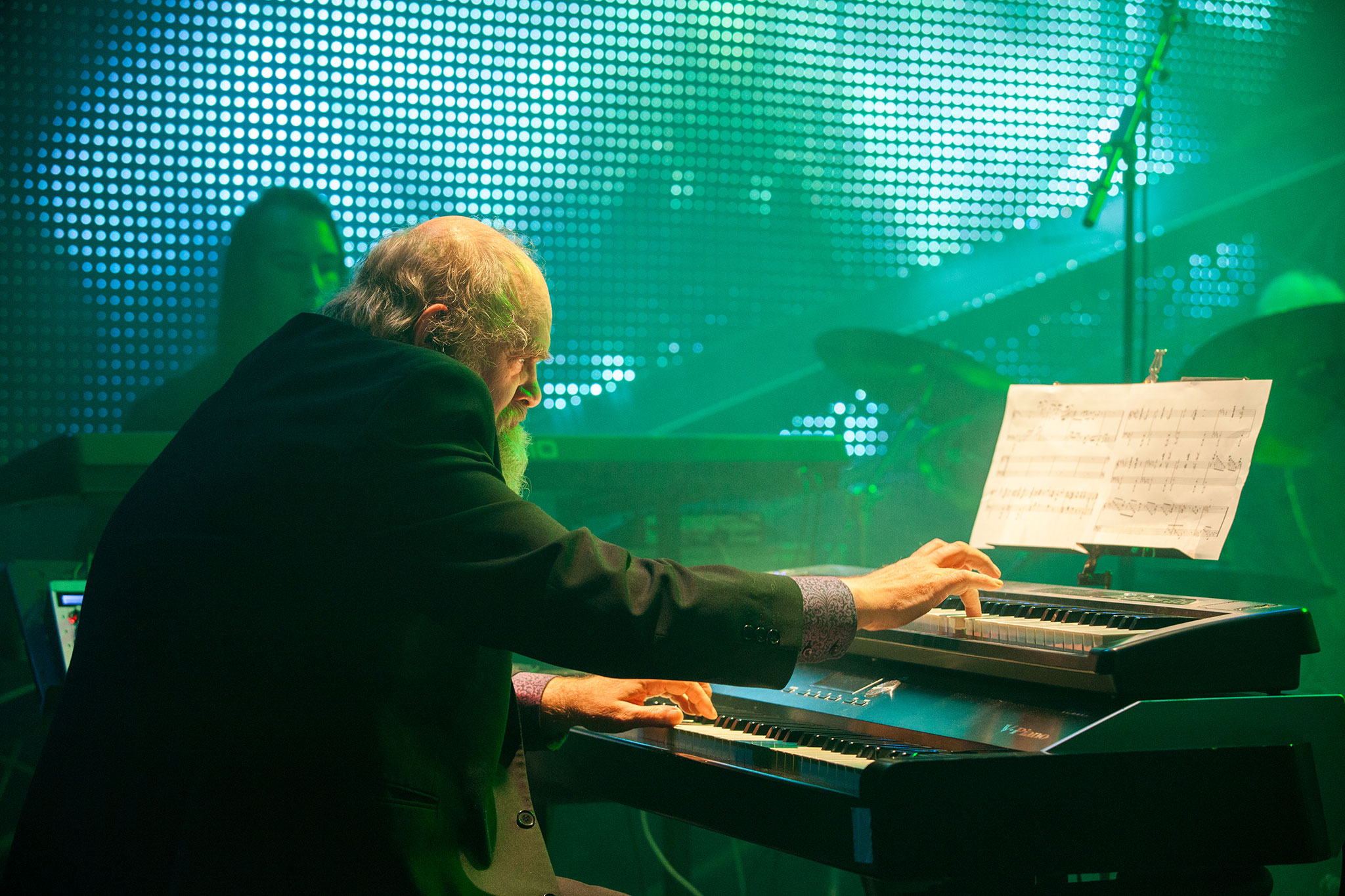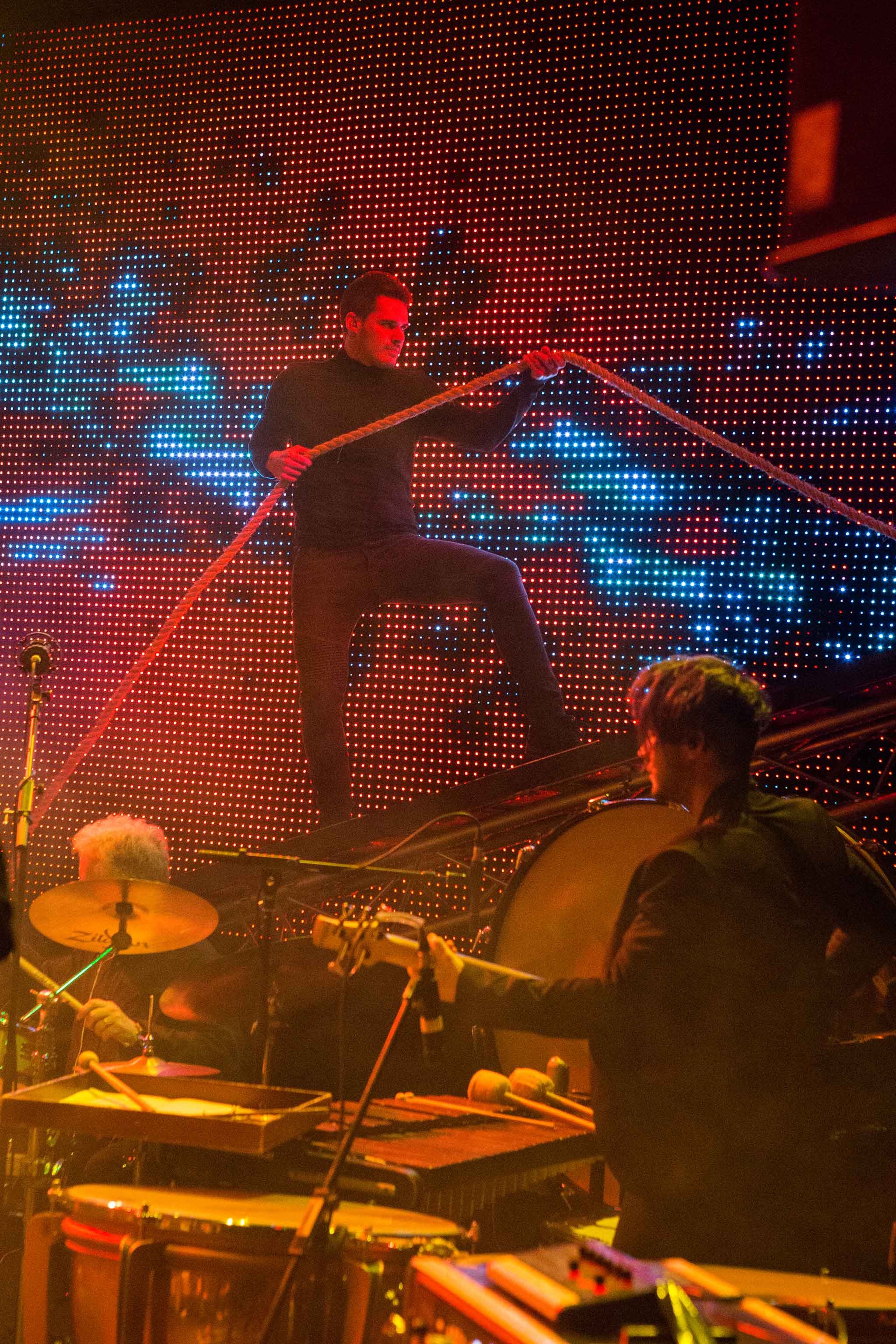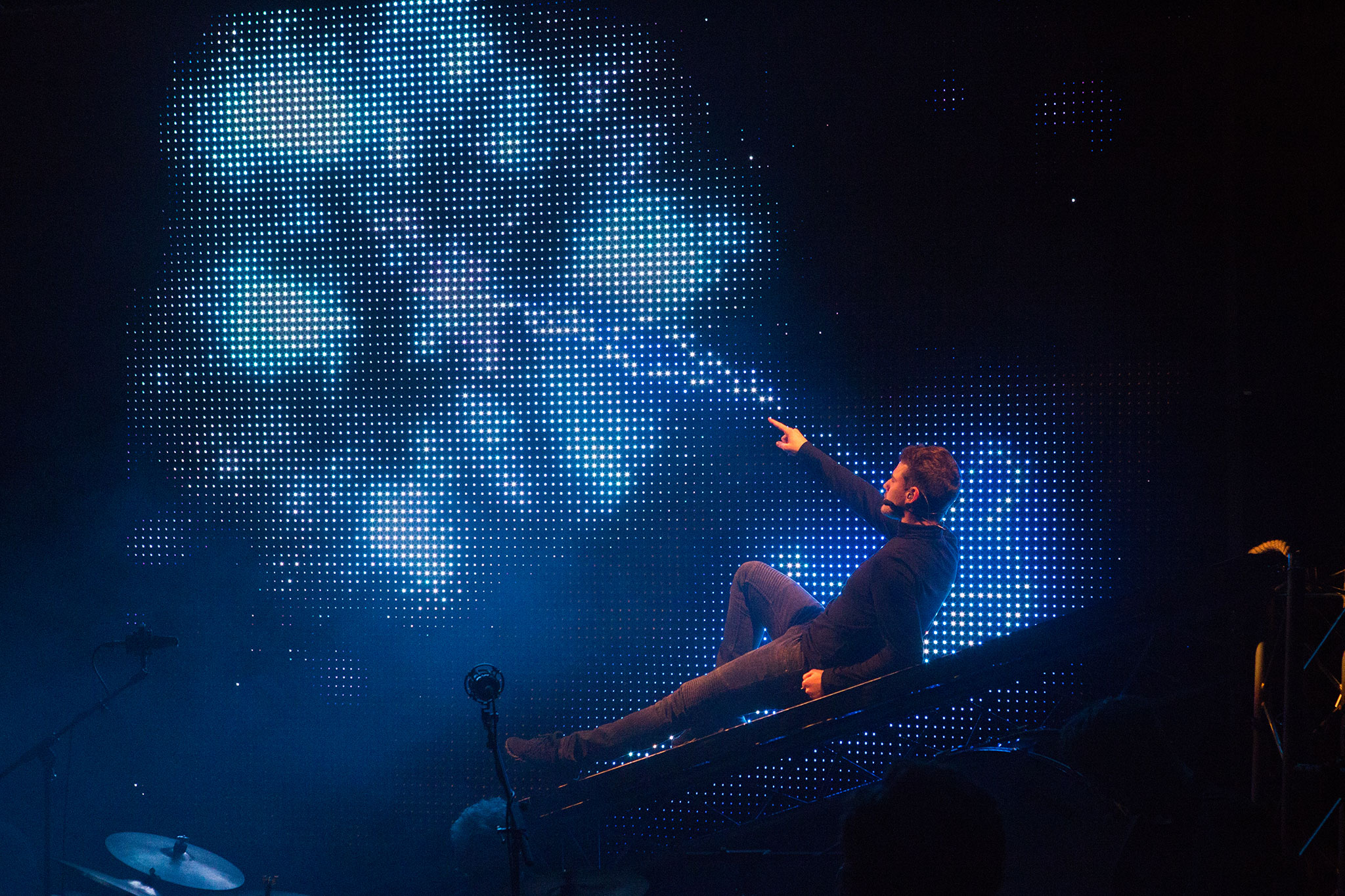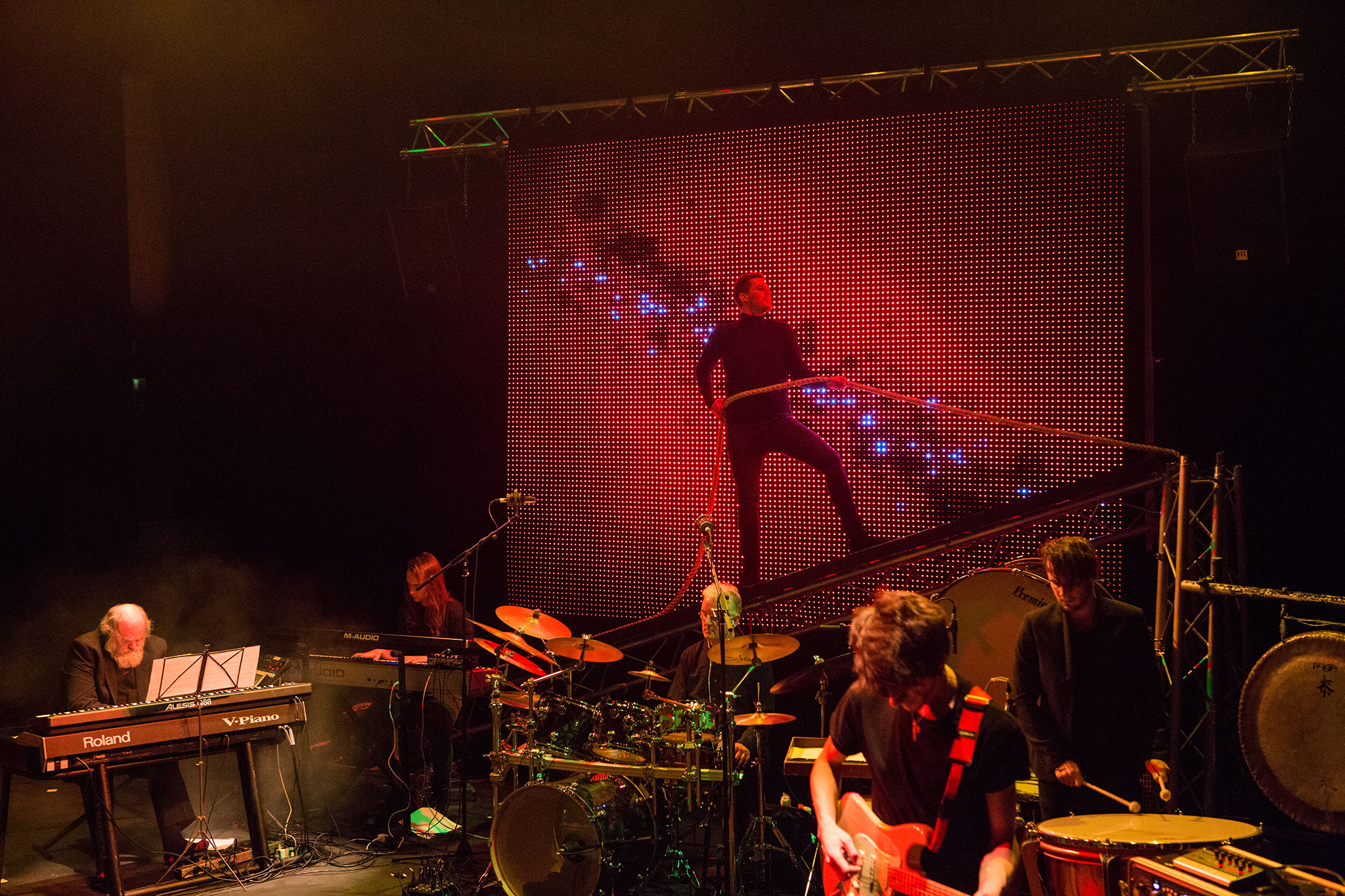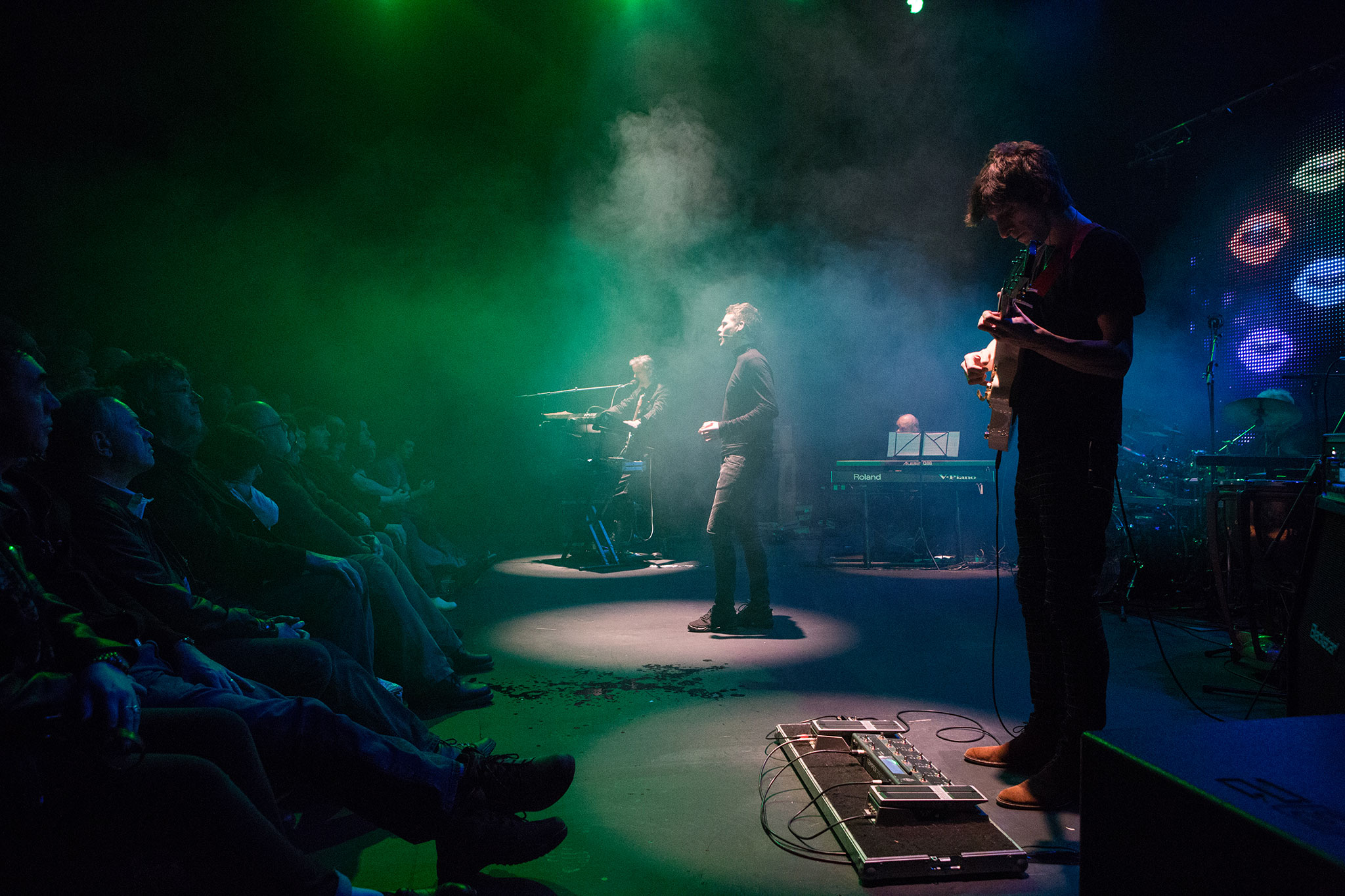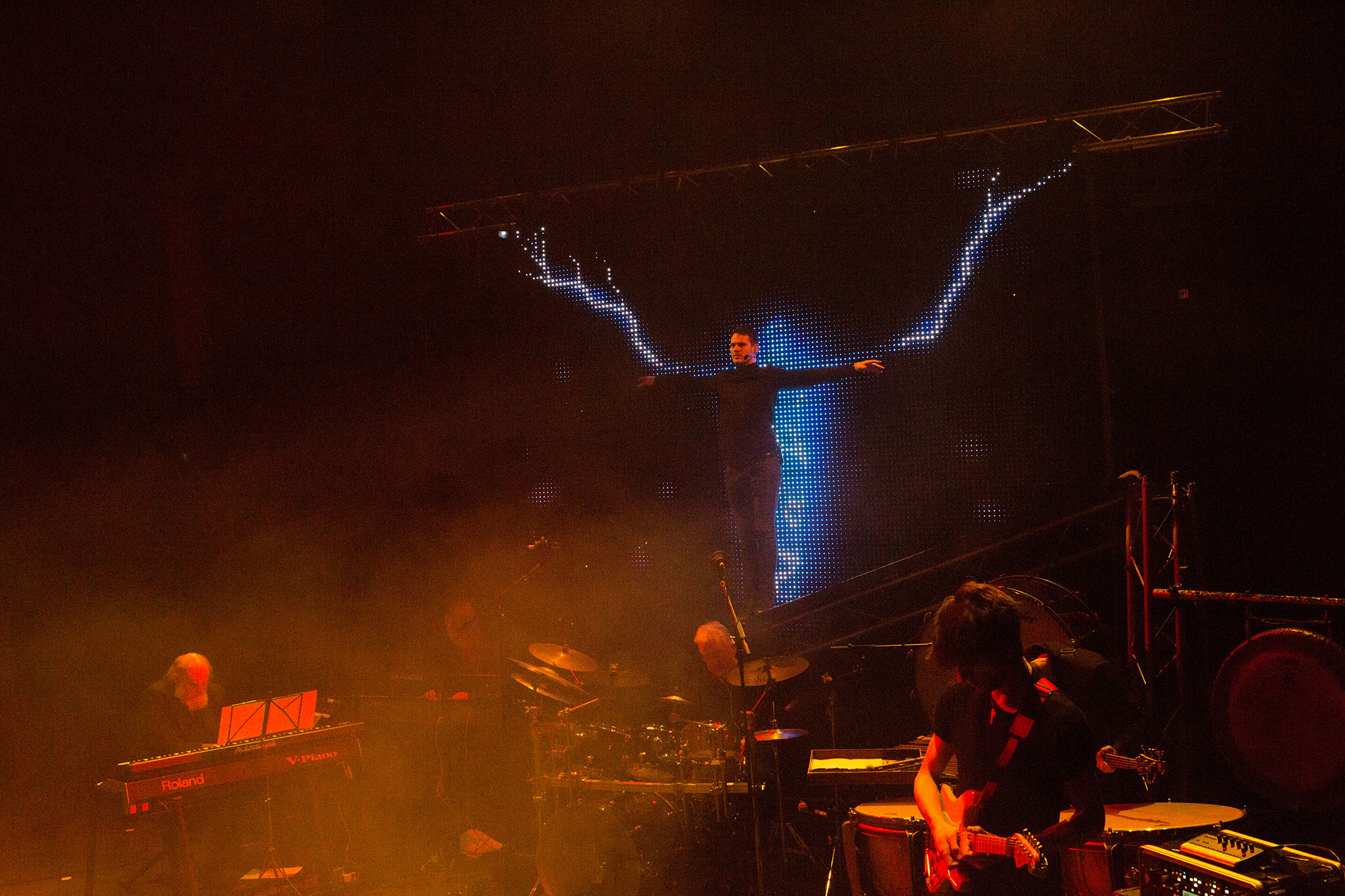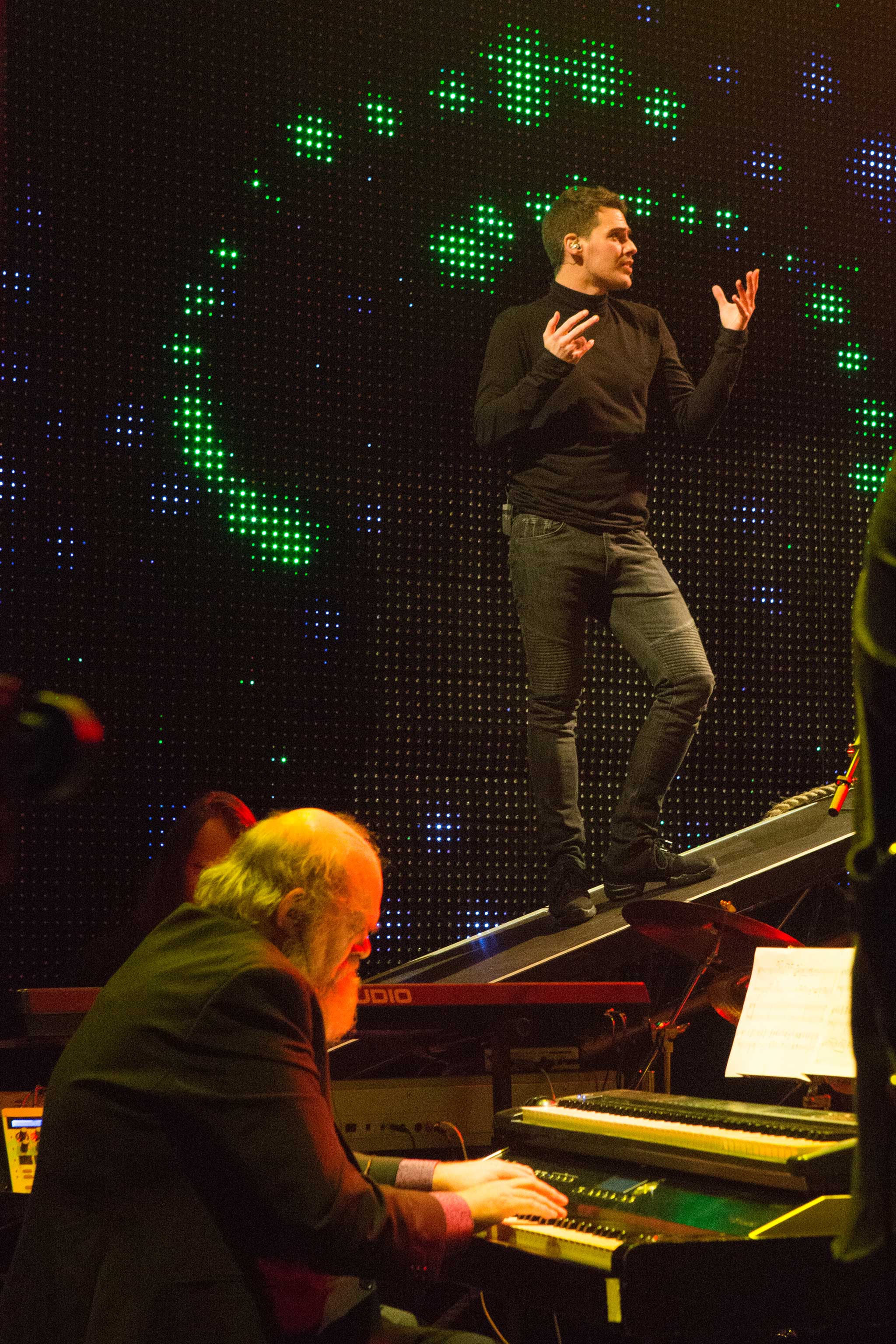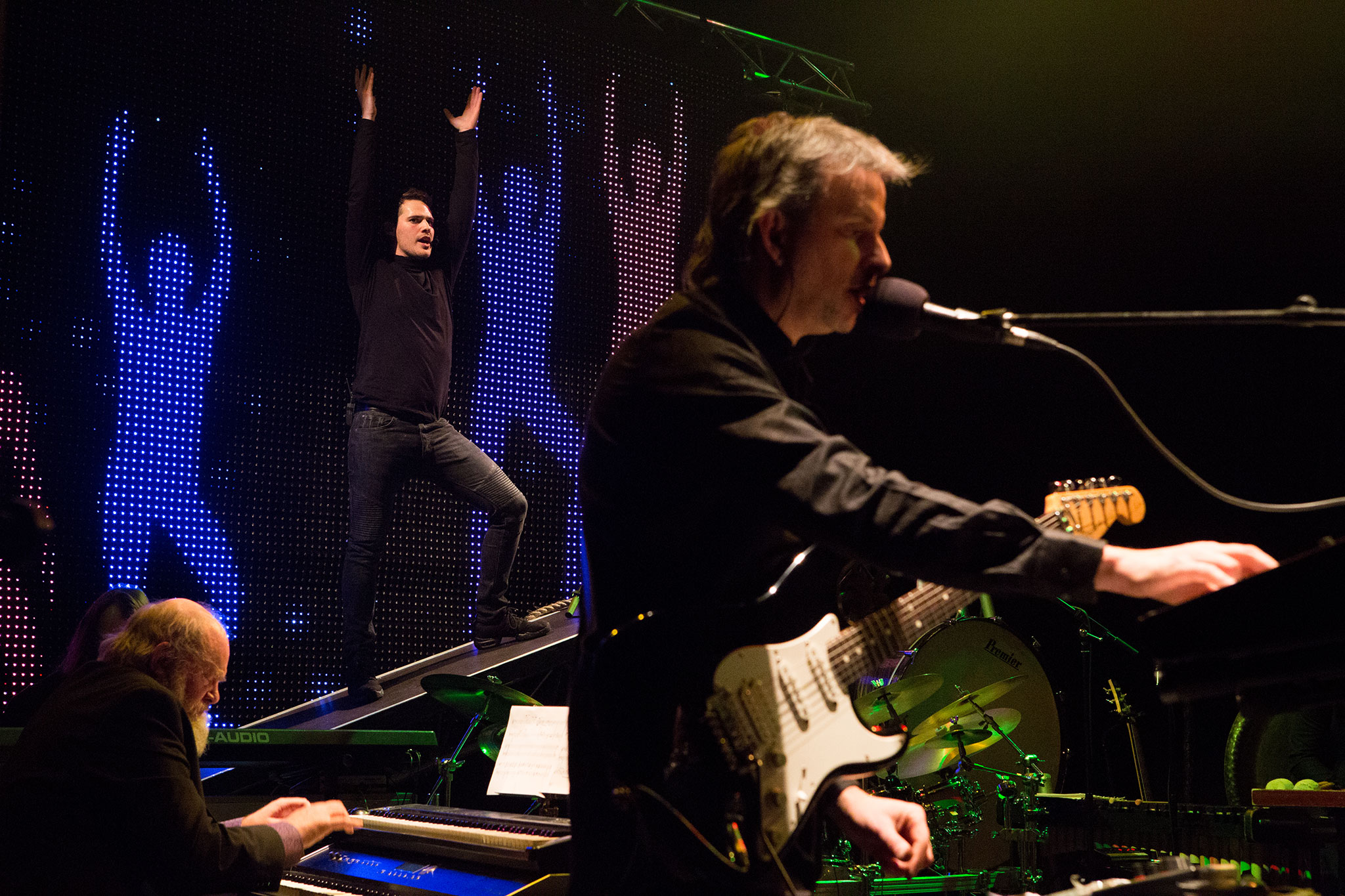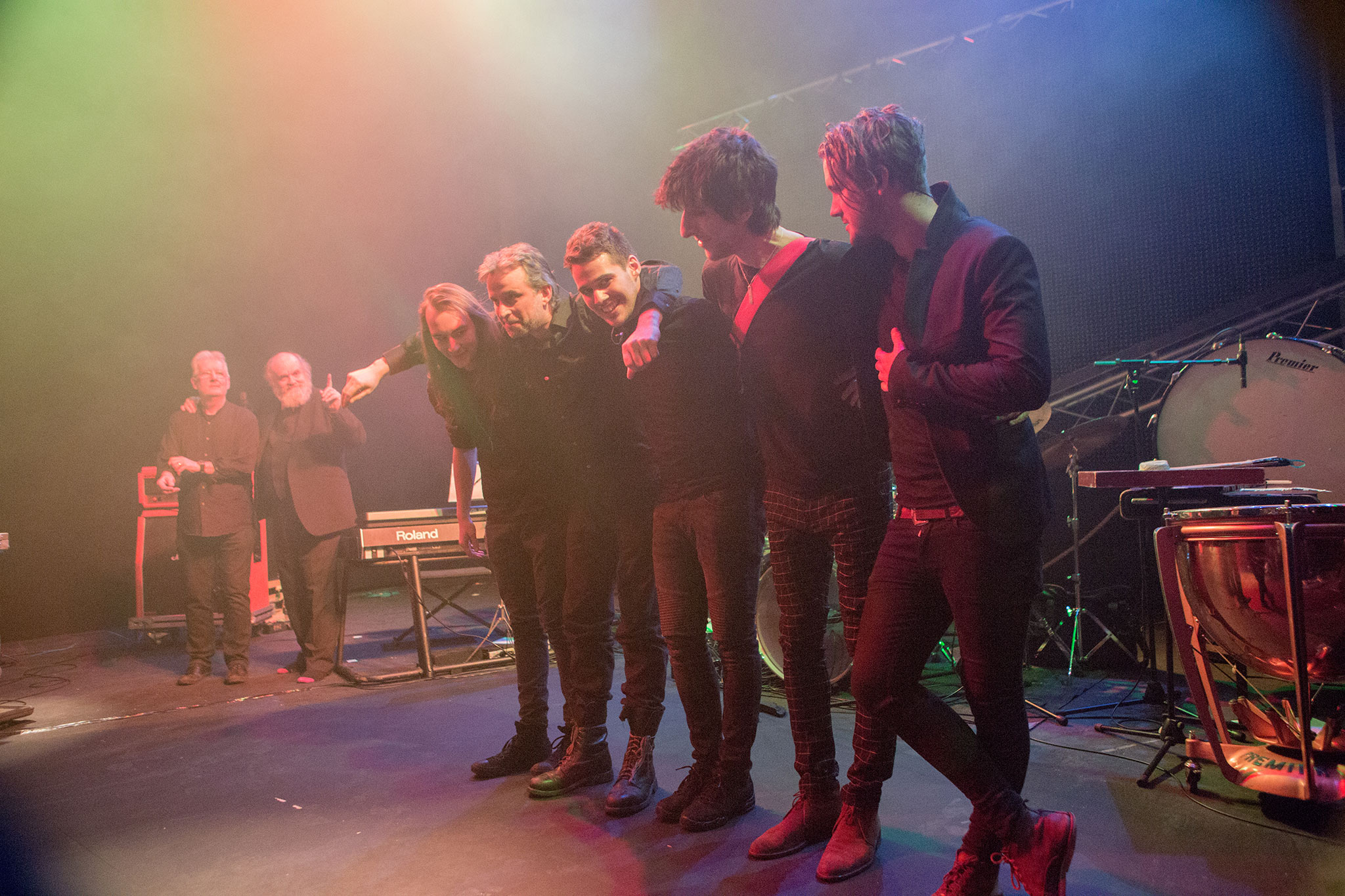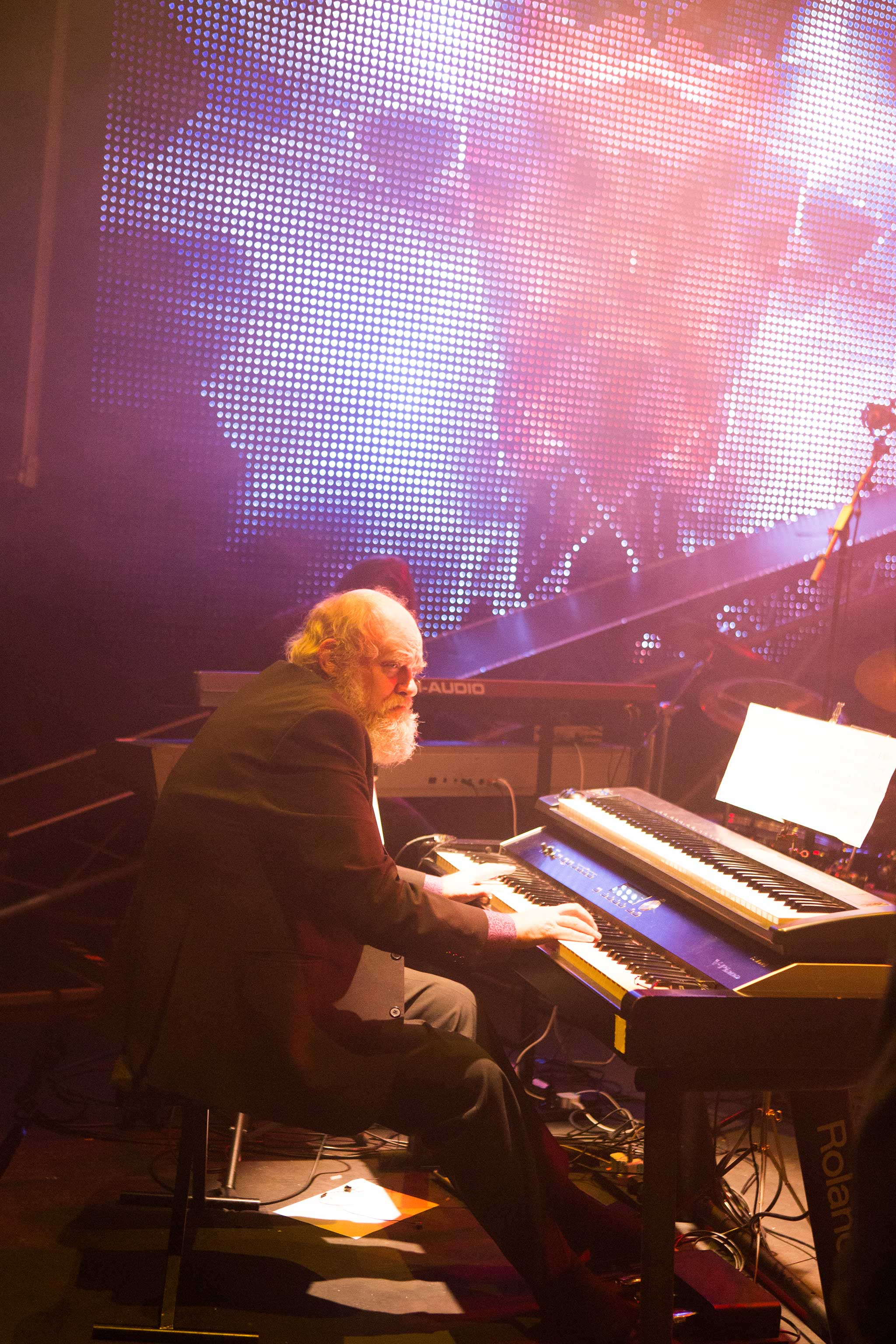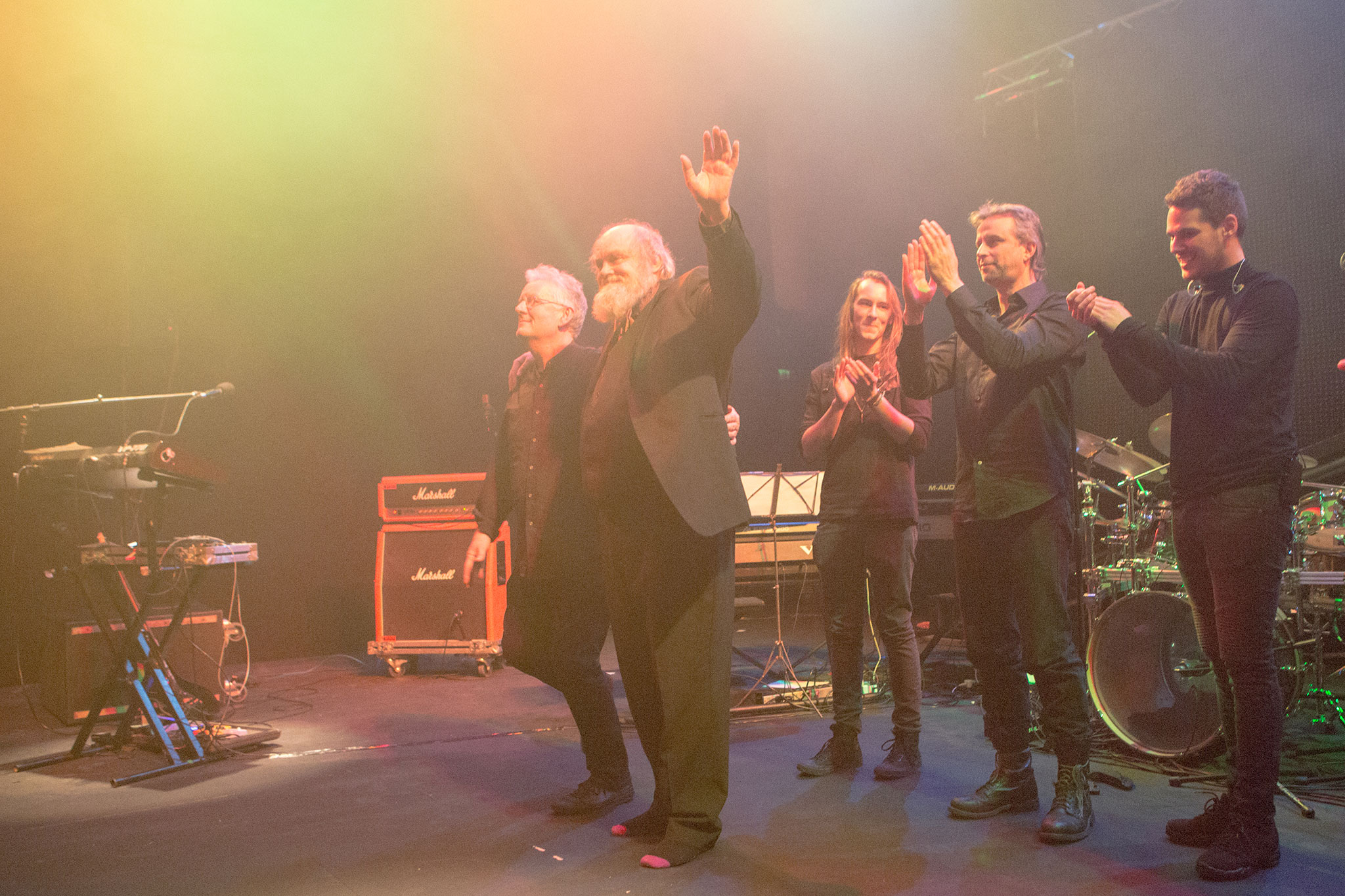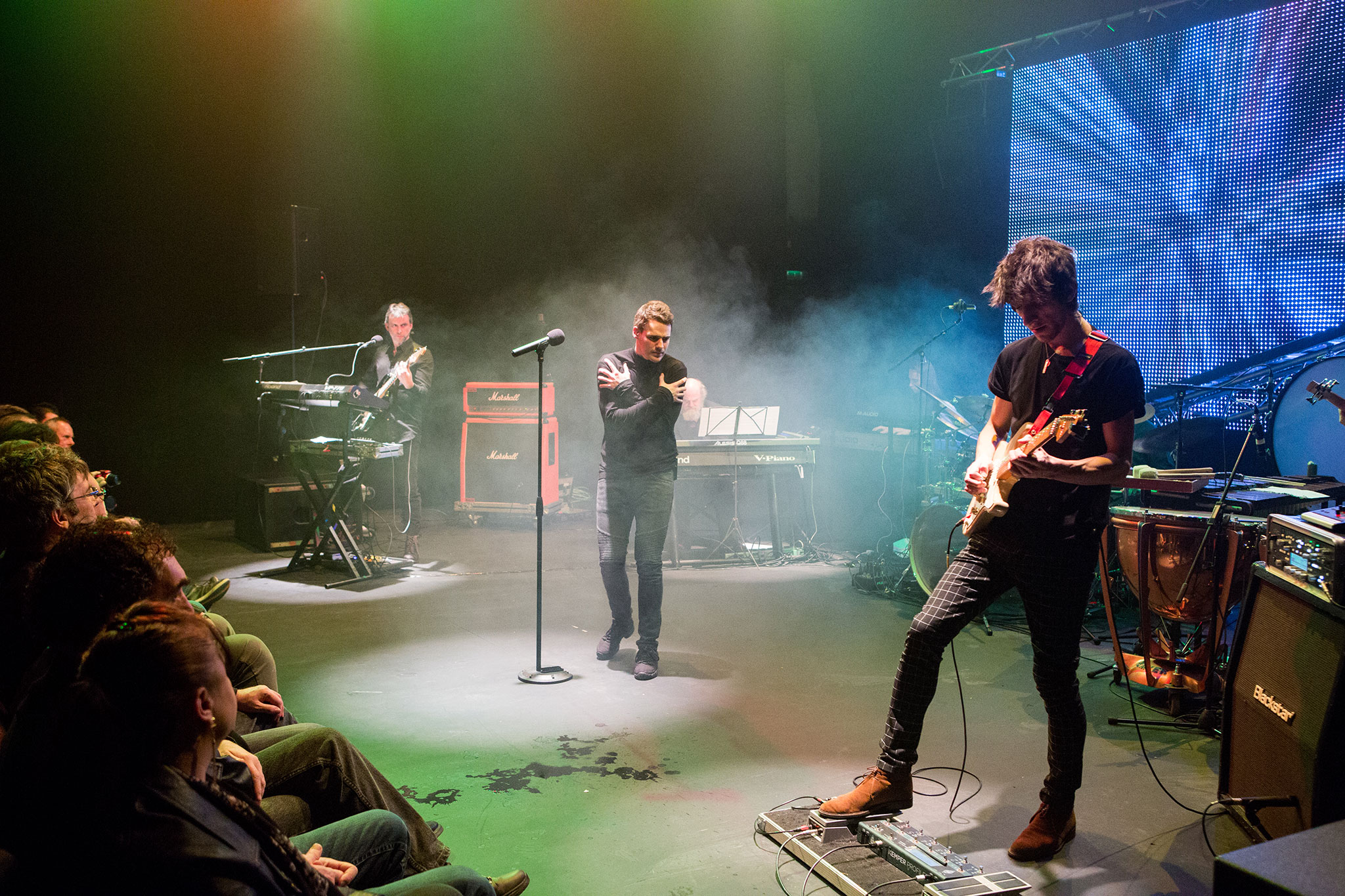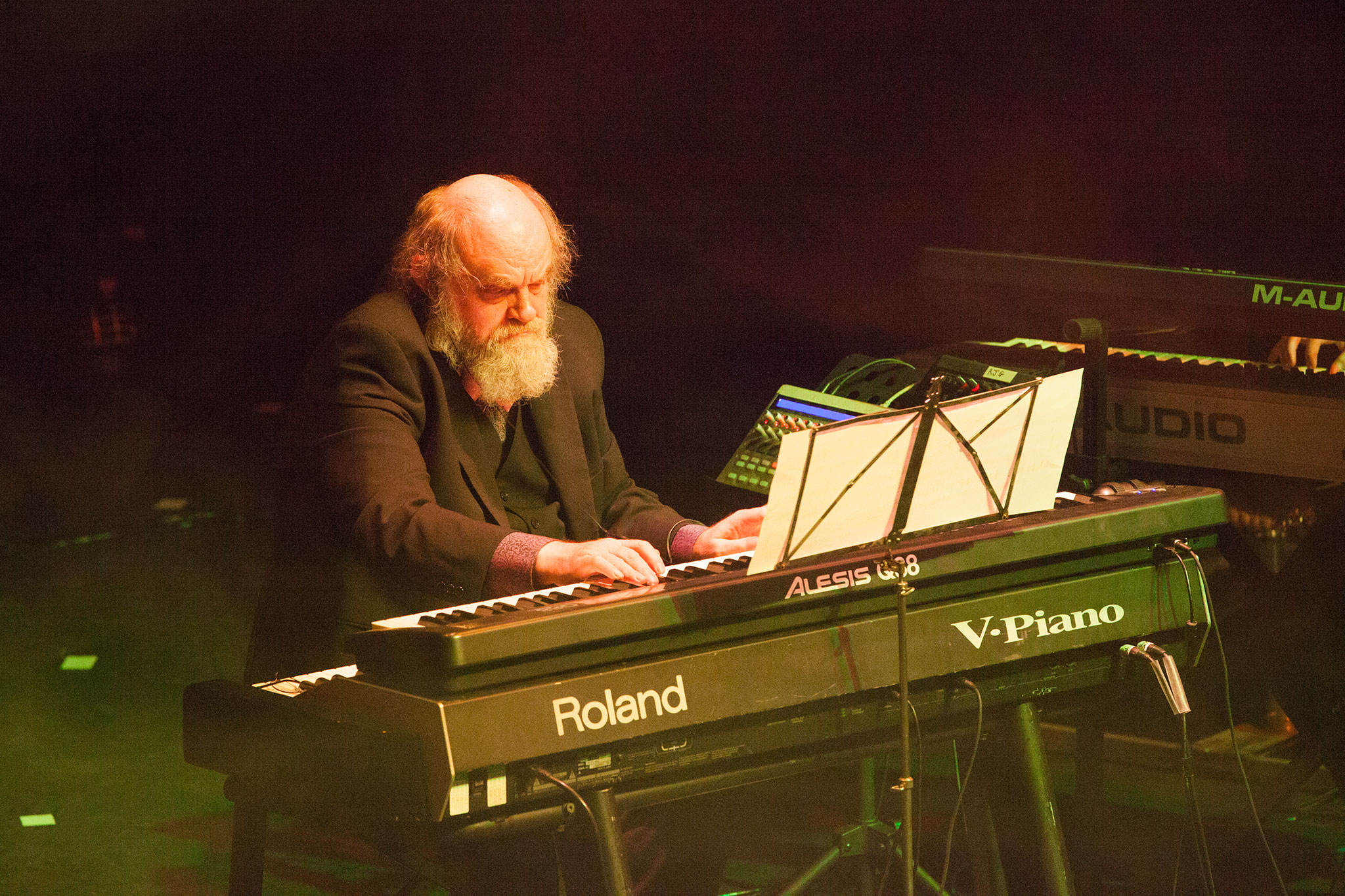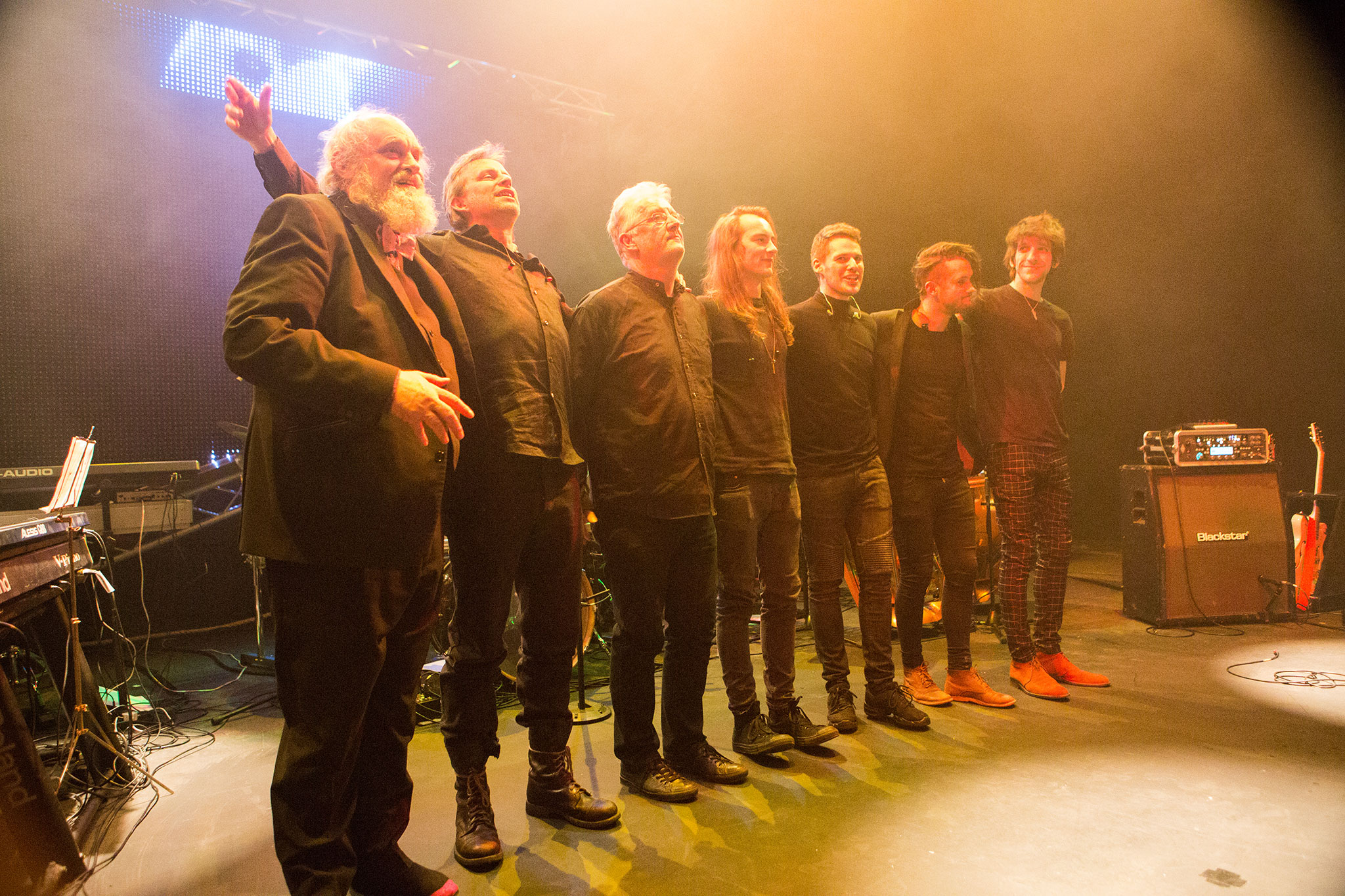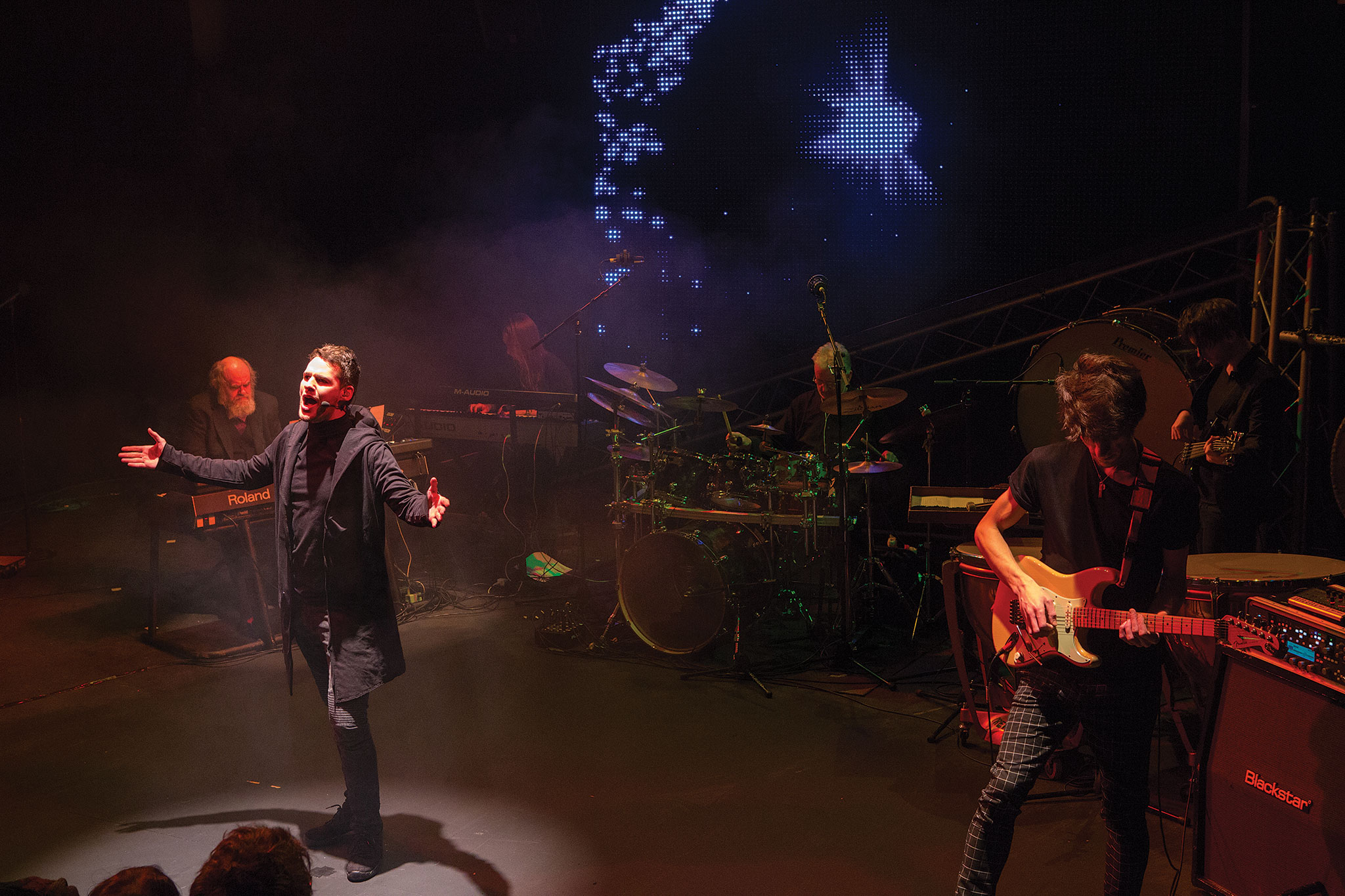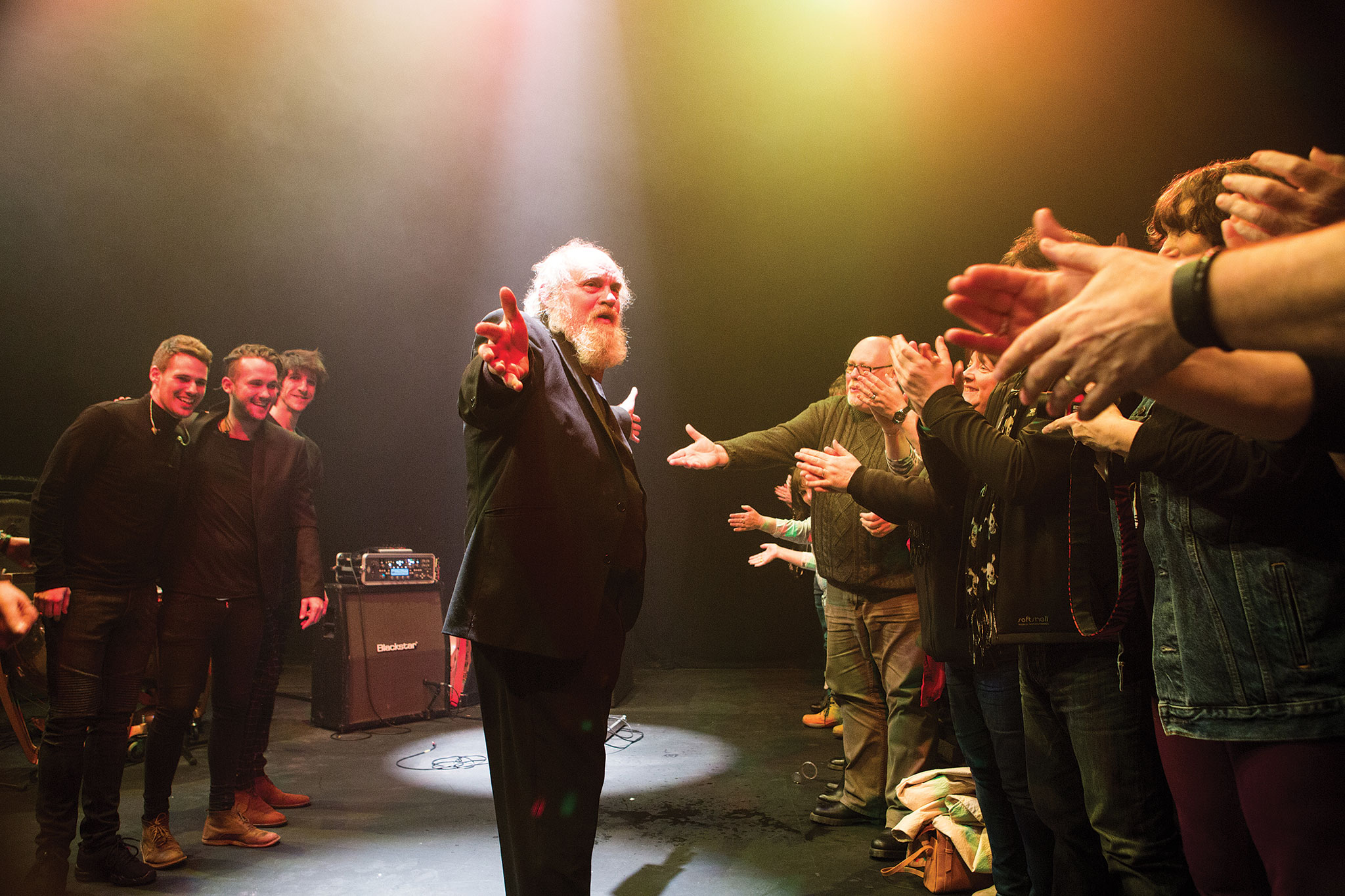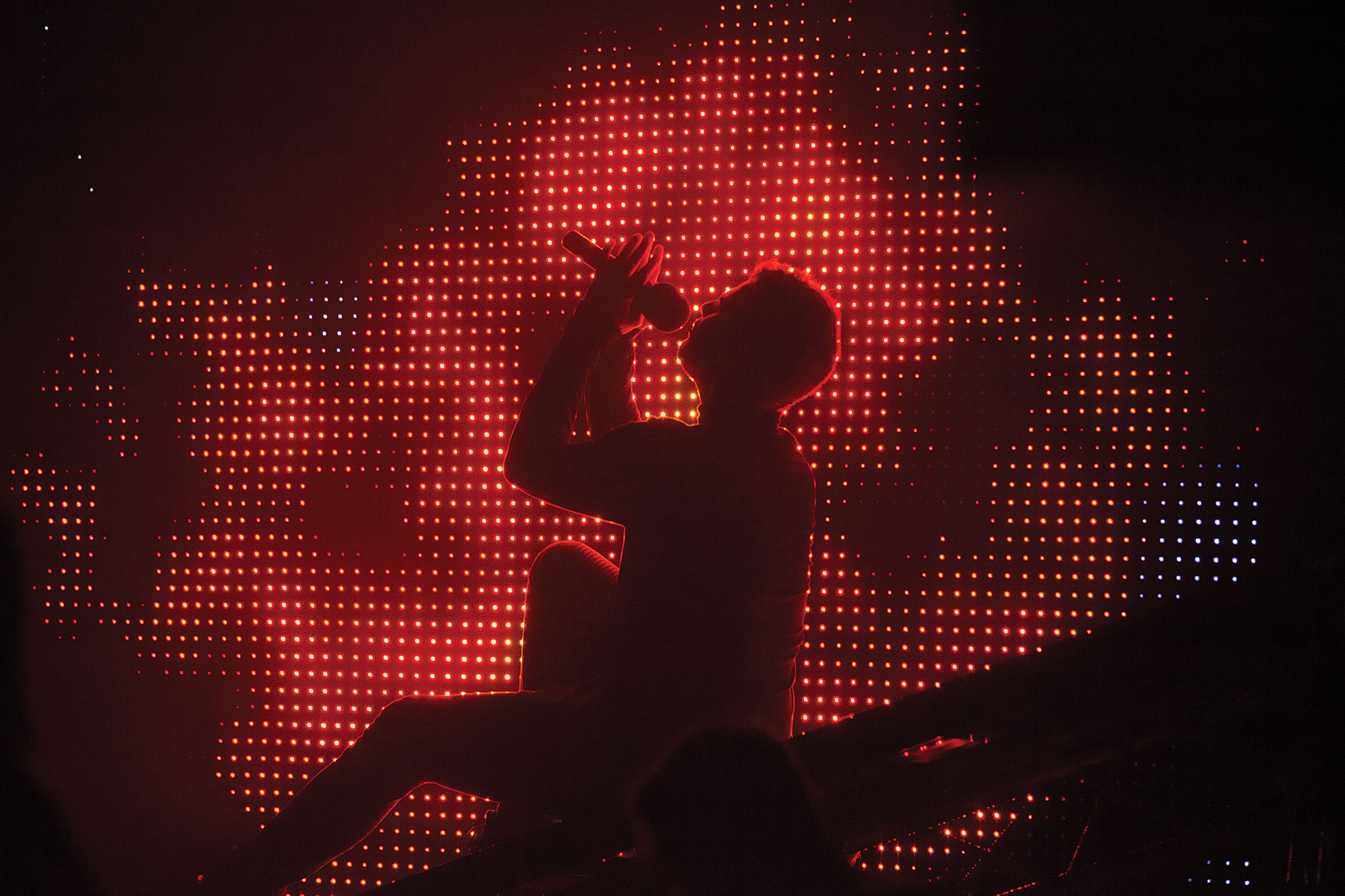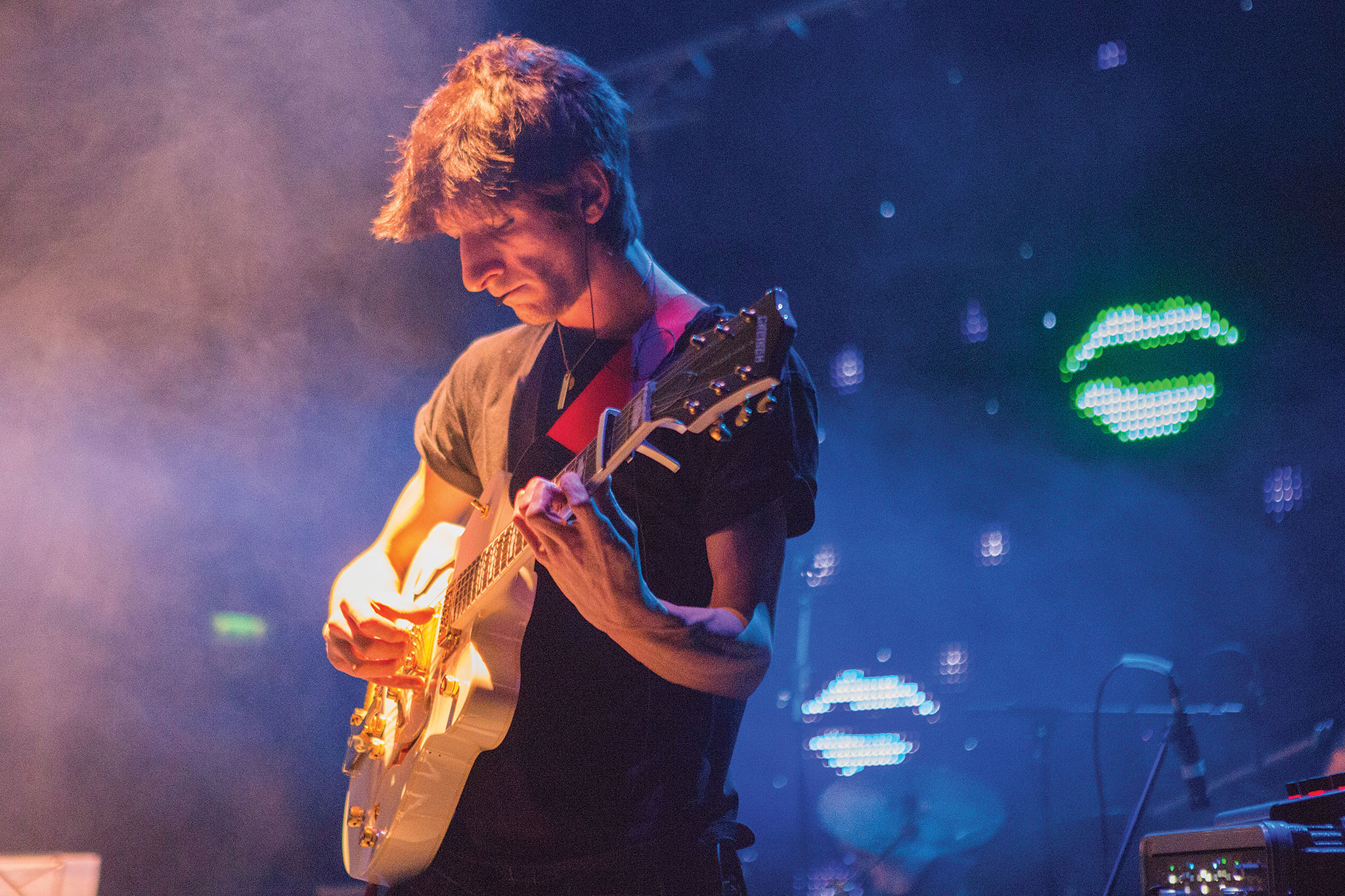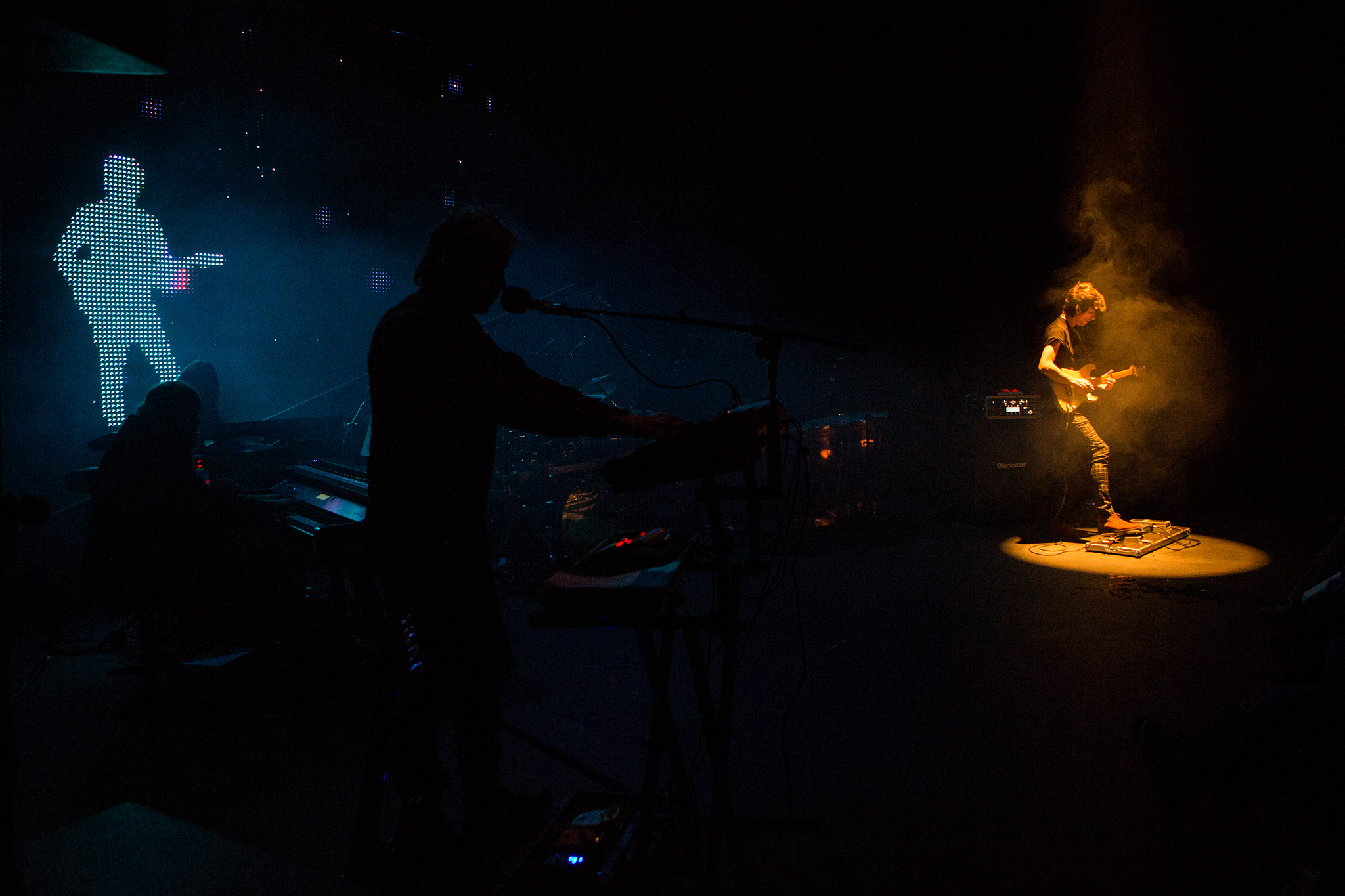Torrential rain proves no deterrent for the near sell-out crowd pouring into Newcastle’s Northern Stage tonight. One suspects it would require something on a more Biblical scale of flood, fire or pestilence to keep them away from The Enid’s first gig in the city since 2013 and only the second staging of their new work, Dust.
Billed as an audio-visual performance, it’s directed by Simon Drake, whose work with Kate Bush, Peter Gabriel and others has won him many plaudits.
From out of the darkness and the big-bang climax of Anthropy, a solitary spotlight singles out Jason Ducker, who delivers the swooping guitar lines on Heaven’s Gate and into Leviticus. The combination of Ducker’s high-end embellishments and Joe Payne’s bravado vocals toward the climax fleetingly, and incongruously, combine to form what appears to be the best track that Queen never played. Having just scooped the Readers’ Poll award for ‘Best Vocalist’, Payne can certainly be forgiven the odd moment of pomp and strut, owning the stage from the first note to the last.
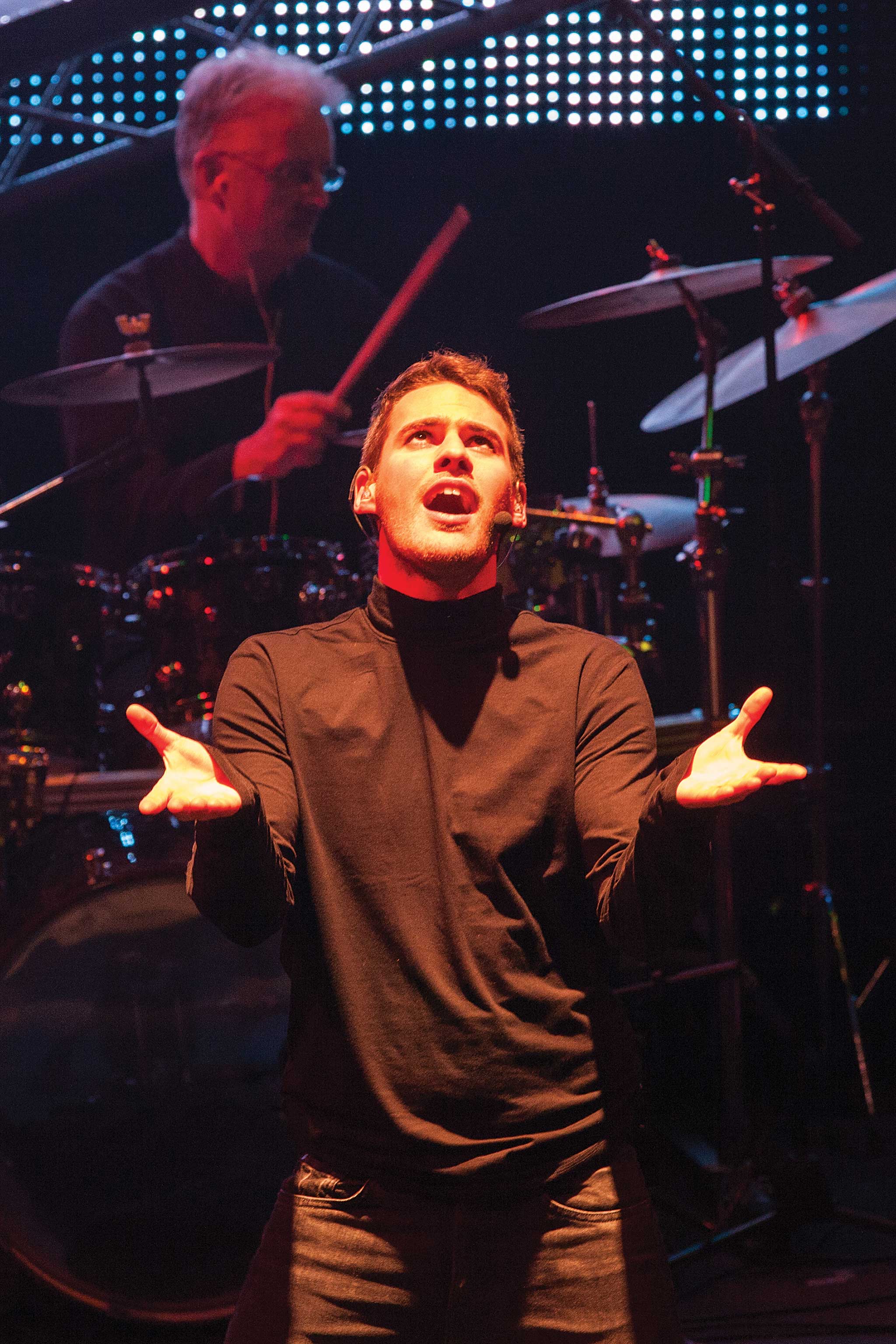
The small theatre is perfect for a stage that includes a steep ramp angled against a large-scale LED screen. Simple in design, it’s extremely effective as Payne climbs up to merge with the animated figure in the backdrop, each mirroring the other.
Stick-thin against the pixelating screen, he merges against an ever-changing star field. Later, with a taut rope in hand, he’s suddenly hauling himself up a never-ending gradient, starkly silhouetted against a blood-red backdrop. At Shiva’s coda, he becomes a visual echo of the multi-limbed deity of the title. Compared to bigger names in the business it may be low-budget, but cheap-looking it’s not.
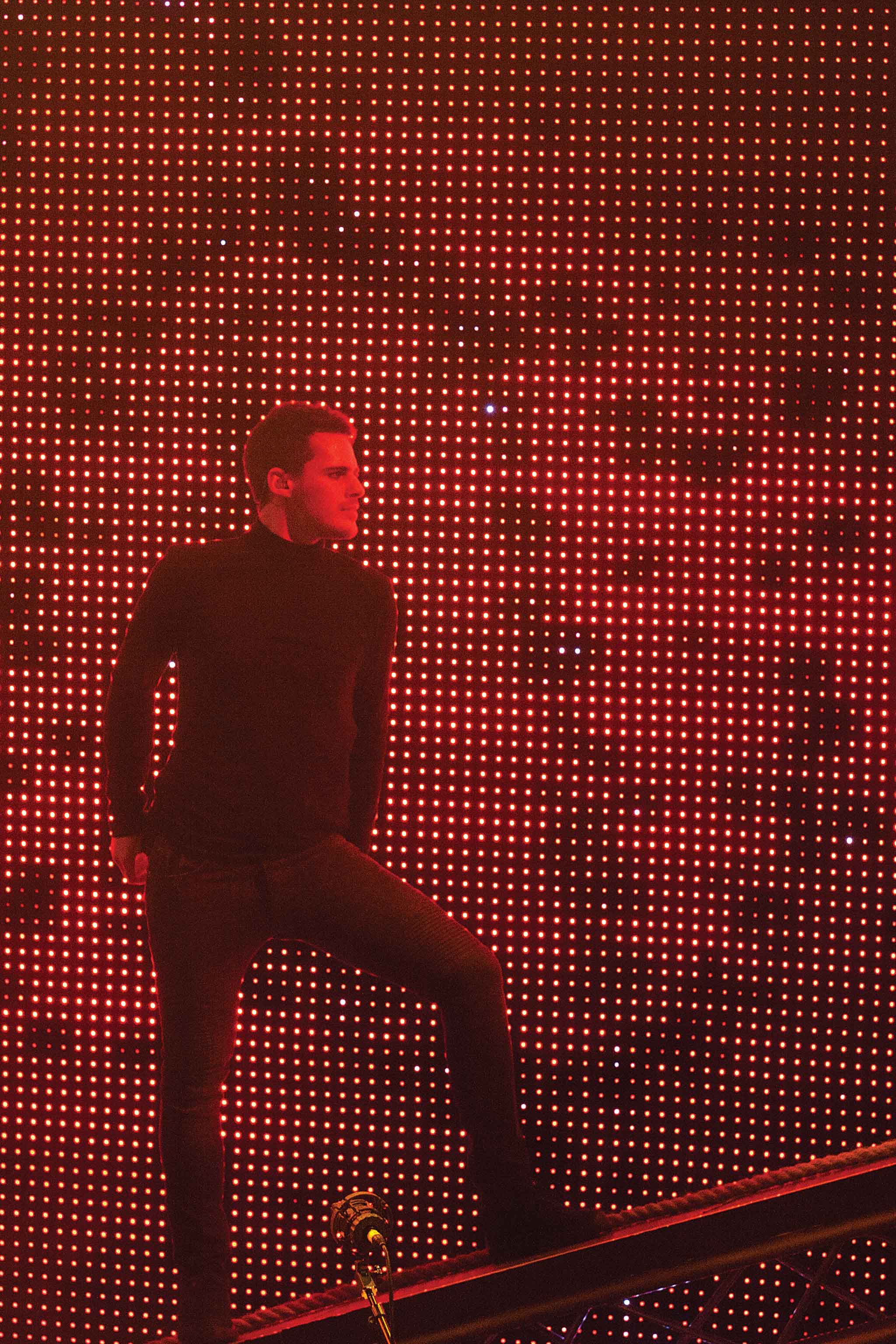
With the first half drawn largely from the Invicta and The Bridge albums, the second set sees Dust unveiled. There’s no great deviation from The Enid’s usual modus operandi. With great swathes of shimmering strings, titanic percussion, glowering horns and rhapsodic cadenza, The Enid’s mission to meld the world of romantic classical music with rock, to create a thoughtful but dynamic hybrid, marches on.
Some might consider such symphonic flourishes a touch florid, but this is a full-blooded performance – there’s nothing phoned-in; nobody on stage is going through the paces. At its core, Dust is about transience, but it also touches upon coming to terms, surmounting obstacles, and kinship. Considering the personal and professional difficulties that have beset the band since 2009’s phoenix-like return, that comes as no surprise. While it’s easy for cynics to sneer about songs that proudly address unfashionable subjects like redemption and hope, in troubled times such as these, it’s good to have someone waving that particular flag. Anyway, in the end, who cares? Certainly not The Enid, who stopped worrying about whether they were fashionable or not a long time ago, and certainly not the crowd up on their feet to give rapturous praise for the previous 45 minutes.
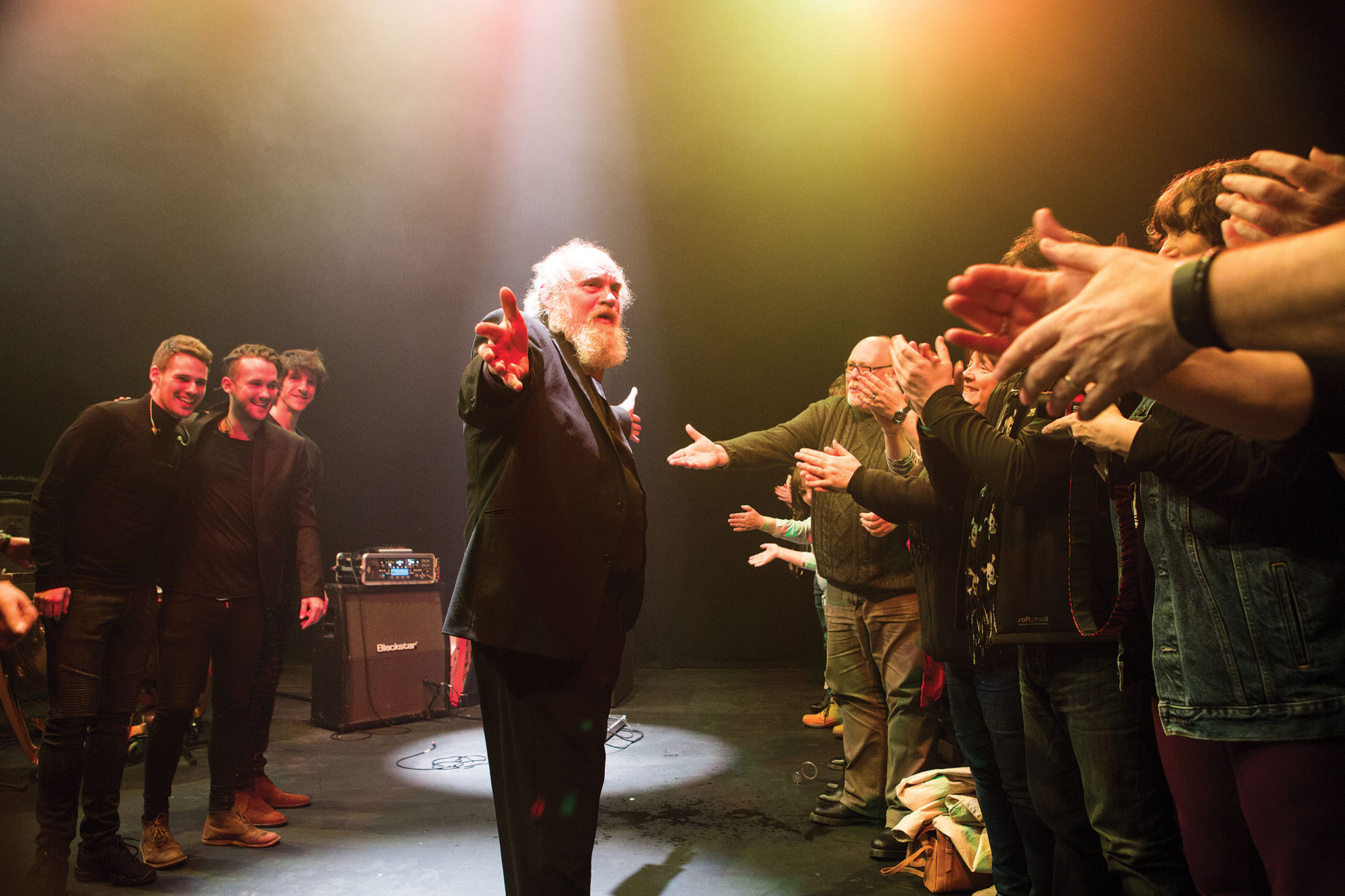
“We said we were going to stop playing this number,” says Payne after they return to the stage, “but here’s Mocking Bird.” Your correspondent reckons it was sometime in 1973 when he last heard this number played live. Back then, it was performed by Barclay James Harvest. Over 40 years on, The Enid’s rendition takes it to another level entirely. Tears? I think something must have got caught in my eye. At the end of the evening, Robert John Godfrey is trying to make his way to the front of house but only manages a few steps before the first of a succession of fans stop him and ask to have their photograph taken with their hero. Grinning broadly, he obliges each and every one of them.
